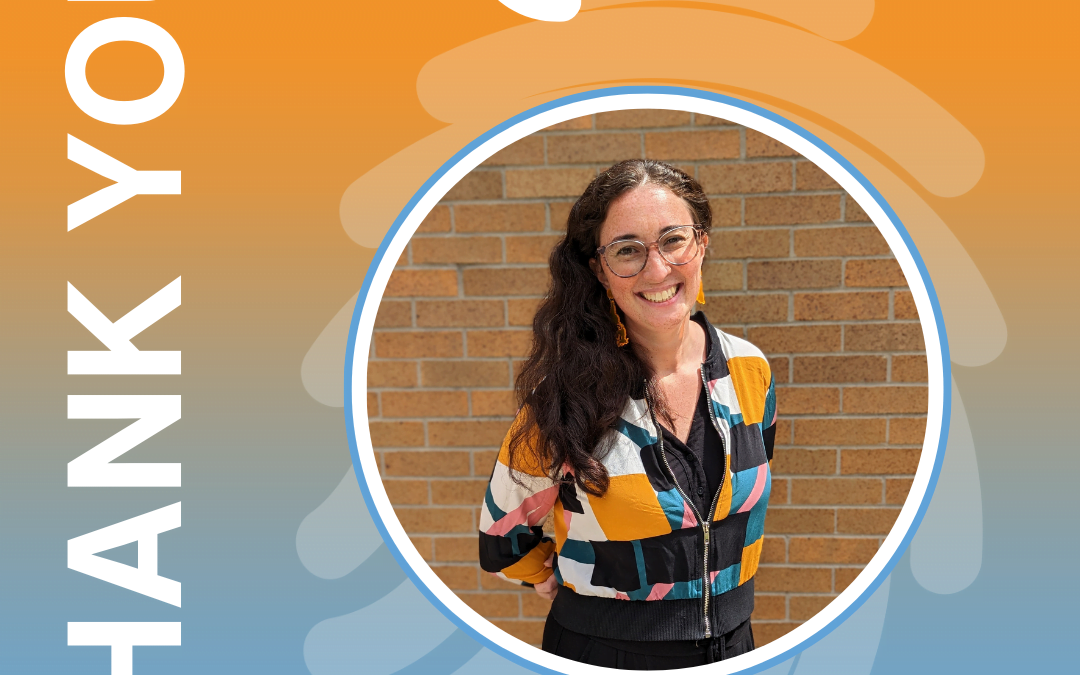
To North York, With Love,
It is with a mix of emotions that I write to you today to share some news: after several years of incredible experiences, I will be bidding farewell to my role at North York Arts.
Since the spring of 2016, I have had the immense privilege of being part of this vibrant organization. I started at NYA as an intern, new to arts administration and a newcomer to Canada, here I found a supportive community that made me feel at home. The journey has been filled with inspiring collaborations, and the opportunity to contribute to the rich cultural tapestry of North York.
During my time here, I have been fortunate to work alongside a team of dedicated staff, volunteers, artists, and partners who share a passion for nurturing creativity and fostering artistic endeavors. Together, we have brought numerous programs and events to life for the North York communities.
While it is bittersweet to say goodbye, I am filled with gratitude for the invaluable experiences and relationships I have gained during my time. The lessons learned and memories made will always hold a special place. So today I thought I would share with you 3 programs at NYA that have shaped my career while working at NYA:
My Art, My New Land – In 2016, as I embarked on my arts administration career as a newcomer, there was a movement from immigrant and newcomer artists advocating for enhanced support and services within the arts community for themselves and their peers.
During this time, ‘My Art, My New Land’ emerged as bridging program for newcomer artists to better understand the Canadian arts landscape, spearheaded and created by at the time North York based artist Aitak Sorahitalab.This program served as a valuable introduction to the Canadian arts landscape for newcomer artists, with North York Arts proudly stepping in as a partner for its inaugural edition.
NYA has continued its role in supporting newcomer artists on their journeys, recognizing their importance and the profound impact they have on the artistic landscape.
Art Connects – In 2019, our team at NYA (we were four at the time) led internally by Melissa Foster, gathered in a circle with Elder Joanne Dellaire and Indigenous leaders and artists Veronica Johnny and Aqua Nibii Waawaaskone. We delved into a crucial question: ‘As a non-Indigenous organization, what can we do to support the process of decolonization and build the right relations with Indigenous communities?’
Those conversations left a lasting impression on me, I still hold in me a lot of what was shared during those circles, striving to honor those teachings in my work.
Art Connects has consisted of multiple components and phases, all of which have centered Indigenous artists. Truth and reconciliation is a continued process and there are missteps and mistakes that will happen, they are inevitable. But I’m proud of the strides the organization has made in addressing the initial question posed at the start of this project. I trust that the work to build right relations with Indigenous artists and communities will continue.
Mapping Our Neighbourhoods – Narrowing down three projects from the multitude NYA has produced and partnered on during my time here wasn’t an easy task. I found myself constantly changing my choices because there are just so many impactful programs. However, Mapping Our Neighbourhoods will always hold a special place in my heart.
2020 and 2021 were difficult years. On top of everything, we were grappling with how to create meaningful online programming amidst a global pandemic. A lot of wonderful arts programming emerged during that time including NYA’s animation program for seniors (another favourite of mine).
The Mapping Our Neighbourhoods program was born out of discussions on how to keep youth engaged and employed in the arts during those years. It remains one of my personal favorites, go check out the short film and illustrated map that were created by youth through the program. Created through collaborative brainstorming with my colleague Julian Carvajal, Mapping Our Neighbourhoods provides a platform for young creatives to collaborate with lead professional artists, crafting art pieces that reflect their unique stories about North York neighborhoods.
From all of us at North York Arts, we’re extending a huge thank you to Cecilia for all of her hard work and dedication to our artists, programs and community. Cecilia is focused, dedicated, leads with integrity and care and has been deeply appreciated and respected by artists, partners, co-workers, volunteers and Board members. These traits will be so valuable in her career ahead. Cecilia – we will miss you and wish nothing but the best in your future endeavors. THANK YOU!!
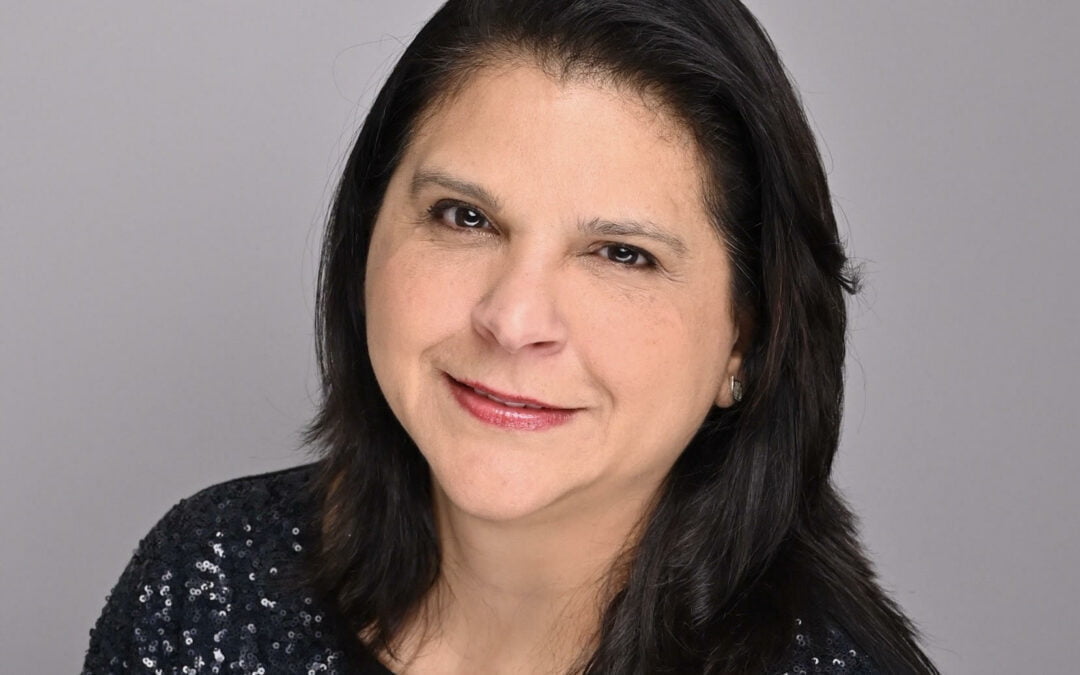
Greetings North York Arts Community,
Navigating the vibrant arts scene, the non-profit realm, and the dynamic world of financial services technology, I’m excited to share a glimpse into my diverse roles.
First of all, I would love to start with my passion for the arts and its transformative effect. I find that art inspires me and helps me spark new ideas, creating space to reflect and explore new concepts. I really enjoy going to museums and attending shows and musicals. Recently, I was captivated by the spellbinding performances of “Fall For Dance North” and “Jagged Little Pill.” These shows added a layer of cultural richness to my life. Hope some of you were also able to catch these shows!
Secondly, as a Board Member and Chair of the Fundraising Committee at North York Arts, I find myself energized when I find ways to help communities and the arts get closer together, all the while learning new skills (this is my first time leading a Fundraising Committee). I find fulfillment in supporting various non-profits, volunteering on two additional boards, as well as providing mentoring and coaching to newcomers in their journey to settle in Canada. I find that nowadays, as we see so much division in the world, we can make a difference by contributing to create connections in our communities.
Finally, I also have a full-time role in banking. Within the banking sphere, my focus lies in finding opportunities to infuse new technology, leveraging innovation to bring new solutions to banking offerings. This job requires me to be constantly looking for opportunities and connecting the dots. I absolutely love this job to the point I feel I would even do it for free (hope no one from work is reading this article!).
So, do you see a common thread here? I hope you do! I sometimes don’t 🙂 Joking aside, I think at the centre of it all is my ability to stay curious and willingness to find connections.
And you would ask about the balancing act? I have to admit that I am not 100% successful all the time in balancing the intricacies of a banking career, parenting two wonderful daughters, making sure I make space to enjoy the arts and continue volunteering in the non-profit sector but…
and there is always a but…
I find satisfaction in knowing that I am heading, in general, in the right direction.
So, at the end of the day, the arts inspire me to stay curious, sparking more energy in my life. Behold – the transformative power of art in action!
Grateful,
Fabiana Montoya
North York Arts Board Member, Fundraising Committee Chair, Volunteer at Two Other Non-Profit Boards, Innovator in Banking, and Proud Parent

Meet Bill!
I am the Board Chair of North York Arts. I am a Chartered Professional Accountant and a senior financial professional and have worked in a variety of industries and roles primarily helping organizations that are undergoing transition. However, I am not your typical accountant.
I have a love and passion for music – especially jazz! After many years of visiting jazz clubs and attending jazz festivals, I decided to further my interest and appreciation of this musical genre by volunteering last summer with the TD Toronto Jazz Festival. Volunteering at an event like the jazz festival is not only a lot of fun, but it allows volunteers to network with a group of like-minded individuals who are passionate about jazz, all while listening to some great music! Many volunteers get hooked on the volunteer experience, make some good friends, and return year after year to partake in the positive energy of the festival. The sense of camaraderie and teamwork that came out of the festival this year was inspiring, and it serves as a reminder of the power of community and collaboration.
Festivals enrich the lives of many and have a huge economic impact on the city’s economy. The TD Toronto Jazz Festival attracts more than 500,000 loyal patrons annually over 10 days as more than 1,500 musicians entertain across the city. Toronto hosts a diverse range of festivals focused on satisfying all interests such as food, culture, art, holidays, and music. I encourage anyone who has some free time to get involved with a festival they are interested in and be a part of a wonderful celebration of culture and community!
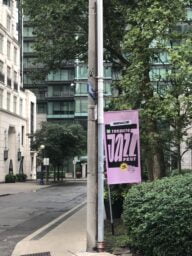
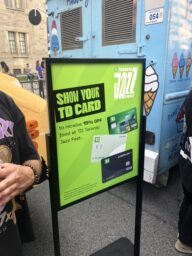
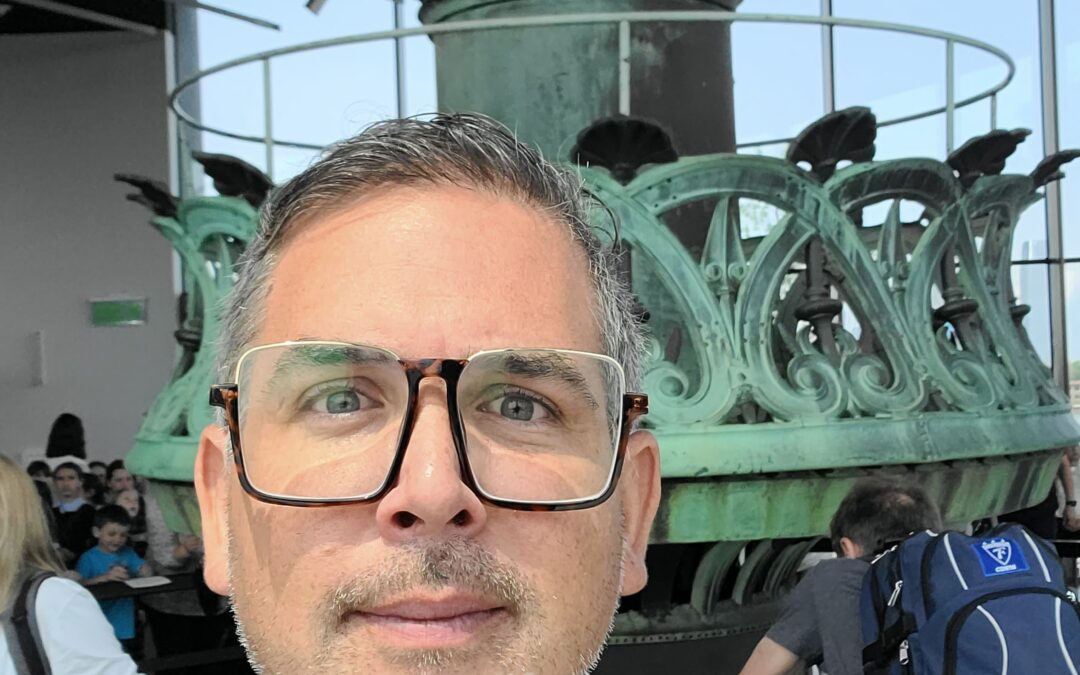
I am a passionate storyteller. I have been able to tell stories in multiple ways using dozens of mediums. I studied arts for 8 years at a fine arts school in Santiago de Cali, Colombia where I am originally from. I have had the privilege to experience firsthand the use of multiple mediums to tell stories. Many of my friends don’t know but I have been writing since I was a child. I have been too shy to write in English because I always have the language fear. I have won awards back home in poetry and my tales and poems were published since I was 7 years of age. I am very passionate about writing and telling stories. I started my own anthology of stories and poems to talk about the feelings I developed when I was first diagnosed with Diabetes Mellitus Type I in 1999. It was really hard for me to describe the way my body was feeling and the way I was feeling in relation to others and my relation to the food.
My Mom studied Gerontology, and while she was going to her practices with my sister and me, I developed this profound love and admiration for seniors. I respect them a lot and I decided to do something to ensure they had an opportunity to express themselves, tell us their stories and celebrate who they are as well as their ancestry. I was able to pilot the program during COVID thanks to the financial support of North York Arts.
This organization believed in the program and my skills to run it. For 10 weeks, Mondays and Fridays became a space for dialogue, a positive space of support and comfort; a space where seniors expressed their feelings and their anguish, their fears, and their concerns. We laughed, cried, kept silent, sang together, danced in the distance, told stories, celebrated countries and their traditions, shared recipes, knitting techniques, and much more!
Thanks to the connection we had with participants a couple of things happened. Personally, I was able to develop a new diagram to make stories more interesting taking them to a deeper level that I didn’t even imagine myself. I call them the Octopus Diagrams. In order to tell stories sometimes, we need to ask the right questions and think and ask out of the box. Creative elements were added to the stories beyond linear storytelling.
Since May 2020 until now, I have had the pleasure of engaging with over 80 seniors, 4 different organizations, and collaborating with Paula Solano, illustrator, to enhance the participants’ stories.
HERE you can take a look at one of the iterations of the program with TPL. If you happen to know Spanish you can listen to the final audios and a teaser of how the program ran HERE.
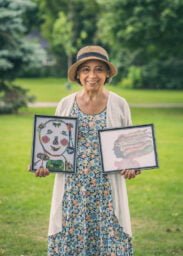
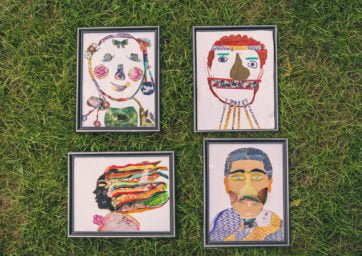
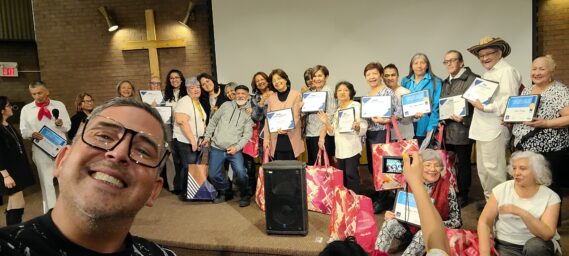
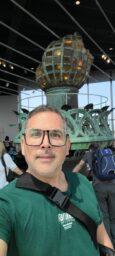
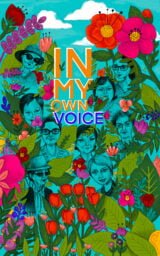
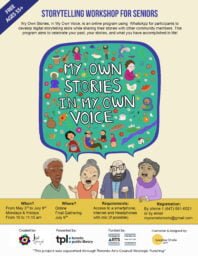
![Thank you for joining us at Inspire North!]()
Thank you for joining us at Inspire North!
An extra special thank you to our incredible photographers, Maria Vega, Ricky Yu, and Shoeb Kadri.
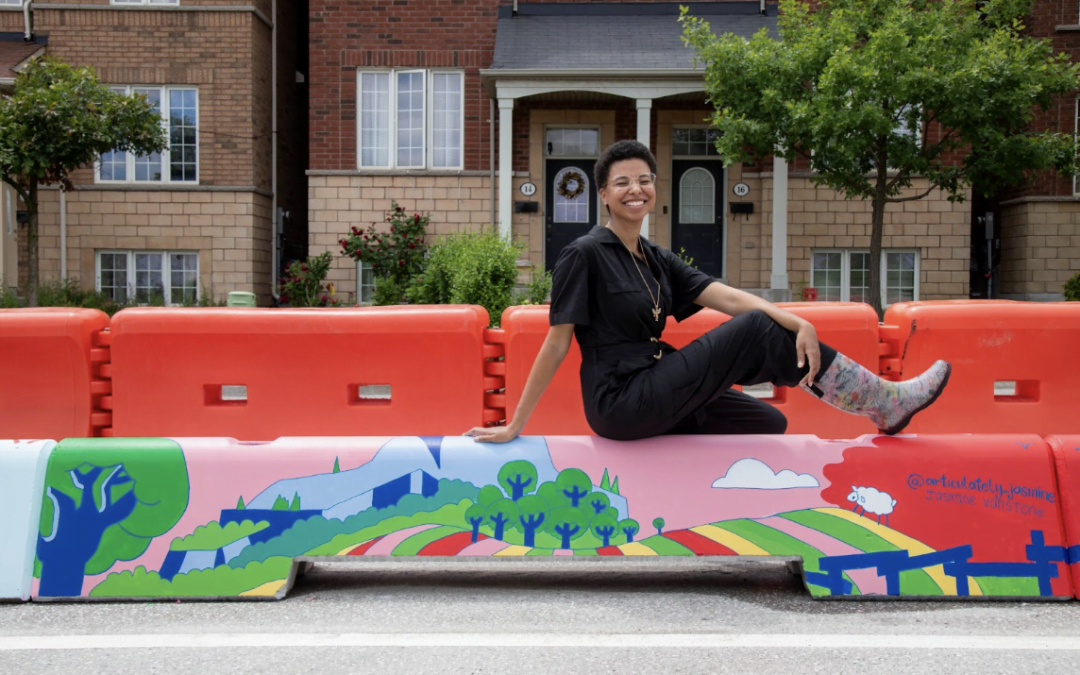
When I was a young creative growing up in North York, I knew I was drawn to the arts. But, at the time, I had limited access to opportunities that developed my toolkit for beautifying spaces, sparking conversations, and amplifying marginalized voices – myself included. It took interning at North York Arts, mentorship from community arts organizations VIBE Arts, Sketch, and JAYU, and peer support from talented artists to really make this emerging artist, facilitator, and arts administrator begin feeling confident. With these experiences, I make it my mission to give back to the community, especially youth, through arts education and community engagement – be it through my arts administration roles for community-based programming, my art by sharing my story, and through arts facilitation/mentorship by sharing what I’ve learned during my artistic journey.
I am so grateful that my story and my passion have led me to connecting with artists, creatives, and changemakers who have taken chances on me to create change in my community.
Journaling Your Cultural Collage (JYCC) is a reflective and explorative arts & wellness program I designed with youth in mind. Funded by RBC Foundation and VIBE Arts with community partners North York Arts and YIELD, this program uses digital collage and various forms of journaling to affirm identity and practice self-care. Artists were able to compile a photobook and appreciate various cultures and walks of life by sharing stories and learning how to create artist statements.
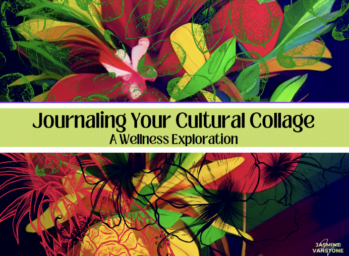
StreetARToronto Evelyn Wiggins Cycle Track brought me back to my university days where I could design and paint a mural near York University. It was very fulfilling being able to beautify the neighborhood where I learned about Cultural Artistic Practice and Visual Art. Thank you to the curatorial, administration, and health and safety team for supporting artists!
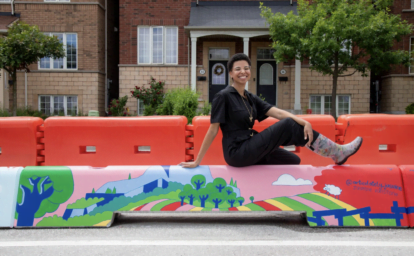
Photo credit: Gage Fletcher @gage.fletcher
Yonge North York BIA x STEPS – Cafe TO is exciting because I ate (and continue to eat) at so many restaurants in WIllowdale and revisited many family memories. I remember when Sheppard Centre had the movie theatre and Pizza Pizza was one building south, but now I have my art on picnic benches in front of many places I’ve witnessed change!
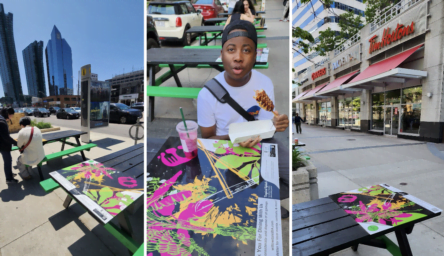
L-R Tropical Splash in front of Yonge Sheppard Centre, Eating ChungChun with little bro on Byng Ave, Tropical Splash near North York Blvd.
VIBE Arts NExT Black Mentorship Exhibition was my first ever art exhibition and it was the greatest because I was able to bring my community into Meridian Arts Centre and connect with wholesome Black artists. I also juggled my arts administration and artist hats being the Education & Engagement Coordinator at TO Live. As an artist, I created a digital collage and painting series called Persephone’s Panganat that spoke to my mixed race identity and I felt so seen, especially celebrating with my North York neighbours who came on opening night.
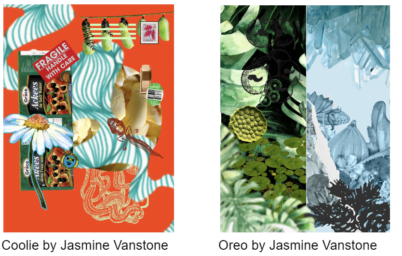
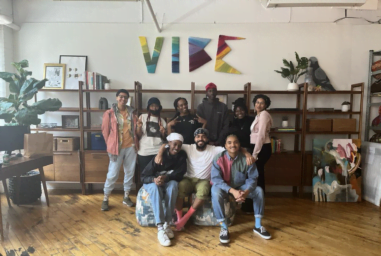
VIBE NExT Black Mentorship 3.0 cohort
There is so much more to share, but alas word counts get the best of memories, so I would be honoured if you could support my artistic journey by following me on Instagram @articulately_jasmine. You are also invited to the Gardiner Museum x VIBE Arts FREE community celebration on August 16 @ 6:30pm!
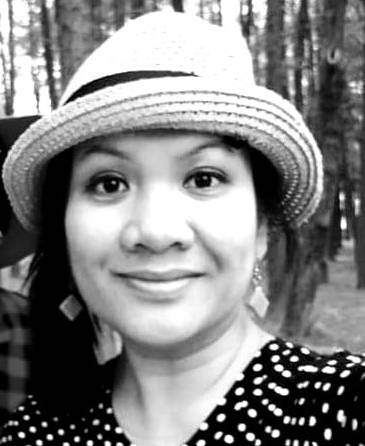
My involvement with NYA started last Spring 2022 when I was finishing my post-graduate certificate in Arts Management and searching for an arts organization to work with as an intern. Going through NYA’s Impact and Annual Reports page, it didn’t take long for me to put NYA at the top of my list. Working to address the needs of not only artists and arts organizations, but the community as a whole through different types of art is a remarkable endeavor that I wanted to be a part of.
I am currently with NYA doing administrative support and I take pride knowing that the seemingly minute details of my work in the organization ripple through the bigger successes that happen in our community programs.
Prior to joining NYA, I worked as a kindergarten teacher for more than 10 years. I believe that the arts is a powerful tool in shaping the future. My background in psychology and my passion for the arts are woven into my pedagogical approach as I find creative ways to engage my students in art-playing and art-making. Promoting the arts at school is imperative as a means for students’ self-expression and understanding identity. The arts bring an array of benefits to children’s growth and development including increased self-confidence, enhanced communication skills, and improved cognition.
In 2020, I’ve completed a research that centered around visual expressive arts and student anxiety for my MA in Educational Studies (Special Education) program. My study has investigated and provided information on student anxiety present in schools, the causes, different types, signs and symptoms, and their externalizing behaviors observed in students in the classroom. I also gathered a resource on visual expressive arts (drawing, painting, sculpting, collage making, and mosaic art) used for its therapeutic function, its types, application techniques, and the possible benefits thereof to students with externalizing anxiety behaviors. Finally, a set of recommendations that can help educators integrate visual expressive arts activities into their regular classroom routines were given.
Why is this information important to share in the arts community? As student anxiety becomes an increasing concern in the classroom especially that the recent pandemic exacerbated it, teachers who form the frontline in supporting these students need all the necessary resources that could enable them to support students, (without waiting for the school’s mental health services that are often inaccessible to many students). As mentioned earlier, the arts have a powerful contribution in the development of our youth towards success. When funding and budget cuts threaten arts education and programming in schools, opportunities are taken away from students, and to many, it can hurt academically and psychologically.
As community members, artists, and the workforce behind arts organizations, we are part of the village that collectively raises and supports our youth and sets them up for success. We have to stand guard, be more proactive, and continue to be creative and resourceful in saving the arts for our youth. After all, art saves!
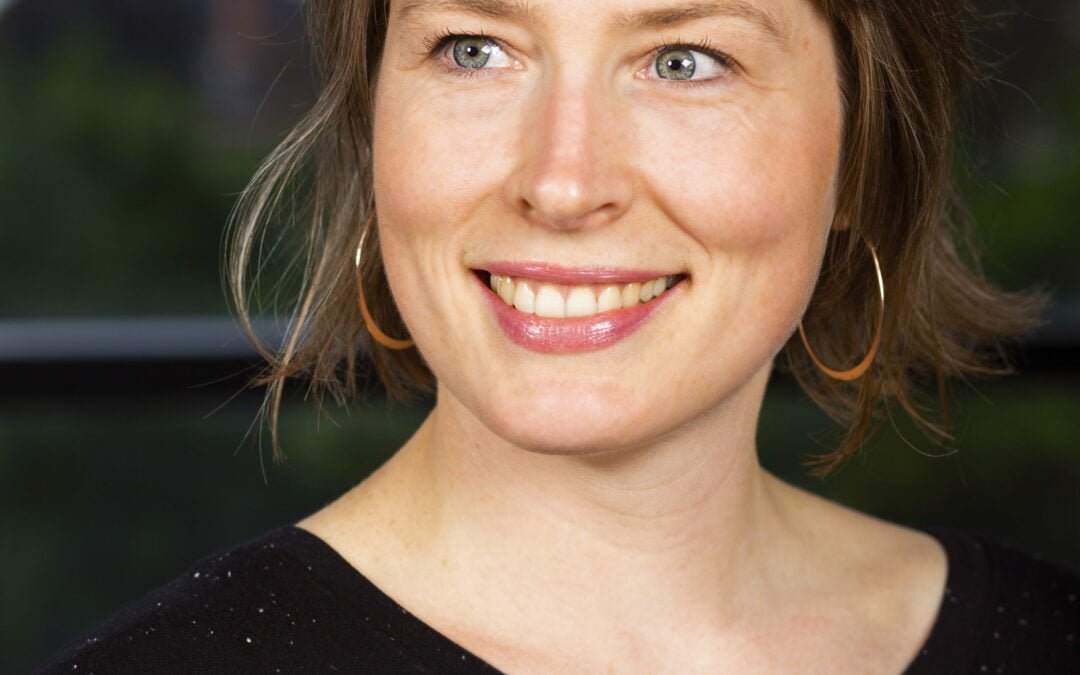
I’ve been with NYA since 2014 and this year I took on a new position as Director of Development (previously I was the Director of Programming and Outreach). Why the switch? Well, to be honest, it’s exactly the same reason as why I wanted to do programming in the first place – because art matters.
My arts background is primarily in Theatre. As I was nearing the end of my degree in Theatre I started to become interested in the emerging world of community arts. Community arts seemed to be a way to work in the arts that made sense to me. Fast forward a few years and I find myself working as a front-line worker in the social service sector, specifically in shelters and in supportive housing. I ended up working in this sector for close to a decade, while maintaining my own artistic practice. In social services the impact of the work is very tangible. Simply put – access to adequate housing is a human right. It is one of our basic needs. It’s hard to argue with the immediate importance of the work. I certainly would not argue against the importance of the work but for me… it was missing something.
When given the opportunity, I began facilitating programs and bringing in other artists. One project in particular had a significant influence on me. It was a theatre project that brought together youth from the shelter, staff and professional artists. Youth chose their role either writing or acting in these 10-minute plays. Staff or outside artists directed or acted. I’ll be honest I didn’t really know what I was doing and I made 1000 mistakes overseeing this project, but in the end all the little mistakes didn’t seem to matter all that much. Everyone had fun and the experience clearly had an impact on all those involved. The project built bridges between staff and residents and a wider creative community. The youth were proud of what they had done. I’ll never forget when one youth who chose to write a short story said to me “No one has ever asked me to tell my story before this”. It wasn’t even so much what he said but how he said it that will stay with me. He had a look on his face that I had never seen before. There seemed to be a shift in the way he saw himself. I witnessed the effect that participation in the arts can have on an individual. I had the privilege to be part of that and the lessons I learned continue to influence every aspect of my work. Art can be a creative platform to share one’s story and has the ability to impact our sense of self and community.
On the one hand as housing workers we were primarily focused on housing and barriers to housing which is absolutely vital but I realised that there was maybe something else I could do to address a different need; one that helps build the individual, the self, and creates a sense of belonging. All I had to do was provide the opportunity; to make some space for people to participate. The process of art-making did all the work. It’s internal work. You can’t really check a box at the end and say, yep done, good job. It’s work that lasts a lifetime and no one really knows the exact impact because it may not be relevant until years later. I loved that I could use whatever resources and tools I had to make that space available. So I made the switch into arts management, and got lucky enough to start working with NYA.
These experiences made me appreciate the value of art in the socio-economic and cultural ecosystem. We tend to think of the importance of things in a linear or hierarchical way. For example, Maslow’s hierarchy of needs. This is a dated reference I know but it is my opinion that it still holds true when it comes to how many people view the importance of charitable work.
Maslow’s Hierarchy of Needs are:
- Physiological Needs (air, water, food, housing)
- Safety needs (personal security, employment, health)
- Love and Belonging (friendship, community)
- Esteem (status, respect, recognition, freedom)
- Self-actualization (desire to be the most that one can be)
But what if we challenged ourselves to see it more like an ecosystem? Where each need has a domino effect on the other. Where they are constantly in a relationship with one another and support one another.
(Let me be clear. If someone is dehydrated I’m not saying we should give them a paintbrush. Give them water. Certains needs, need specific things to satisfy those needs. If your need is water, that need is imminent. But what I’d like to encourage is a more holistic view that can see and appreciate the value of the relationship that exists between things like self actualization and our physiological needs).
Many communities and worldviews reflect this way of looking at things but in this society a linear or hierarchical way of thinking is still dominant.
That’s what was missing for me all those years ago. A focus on nurturing our humanity/soul/creativity/_______ (please insert whatever word makes sense to you). If we saw these needs as part of an ecosystem and not separate from one another how might that affect our work in the charitable sector and how we support the charitable sector? I’m still working on answering these questions.
Art is and always has been an expression of our humanity. It is something we can’t lose and we all have a right to. That is what drove me to start working in arts programming and what drives me in this new role. Creating space so that the art can do the work. It is also why I believe giving to the arts is important and why it is a priority for me. Simply put- art matters.
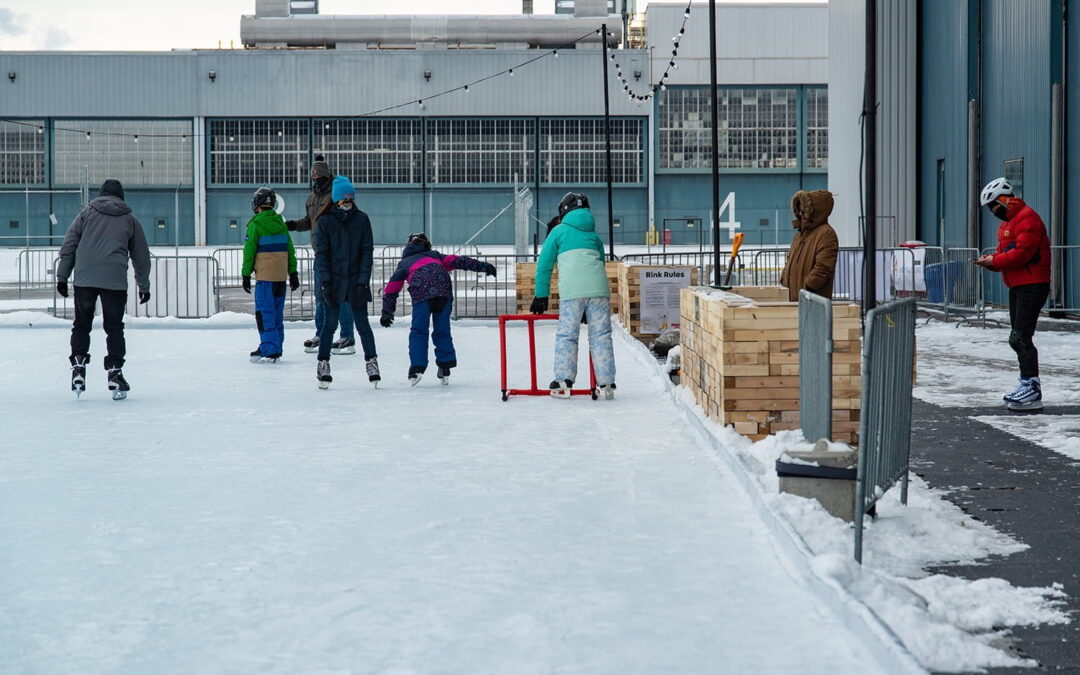
Thank you to our incredible photographers!
Cinematoscape – Ice Skating Photography on Feb 4th
Maria Vega Photography – Roller Skating on Feb 18th
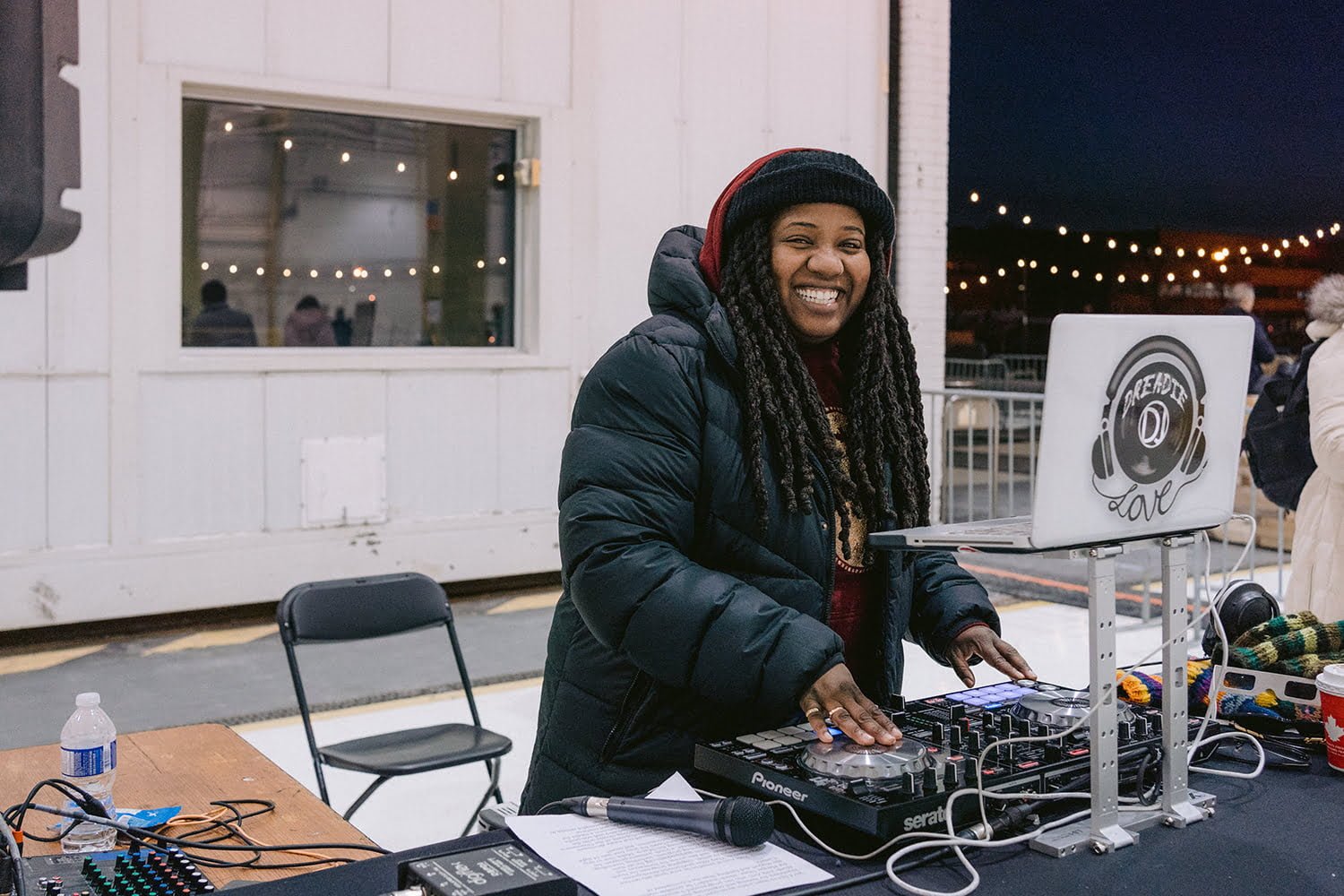
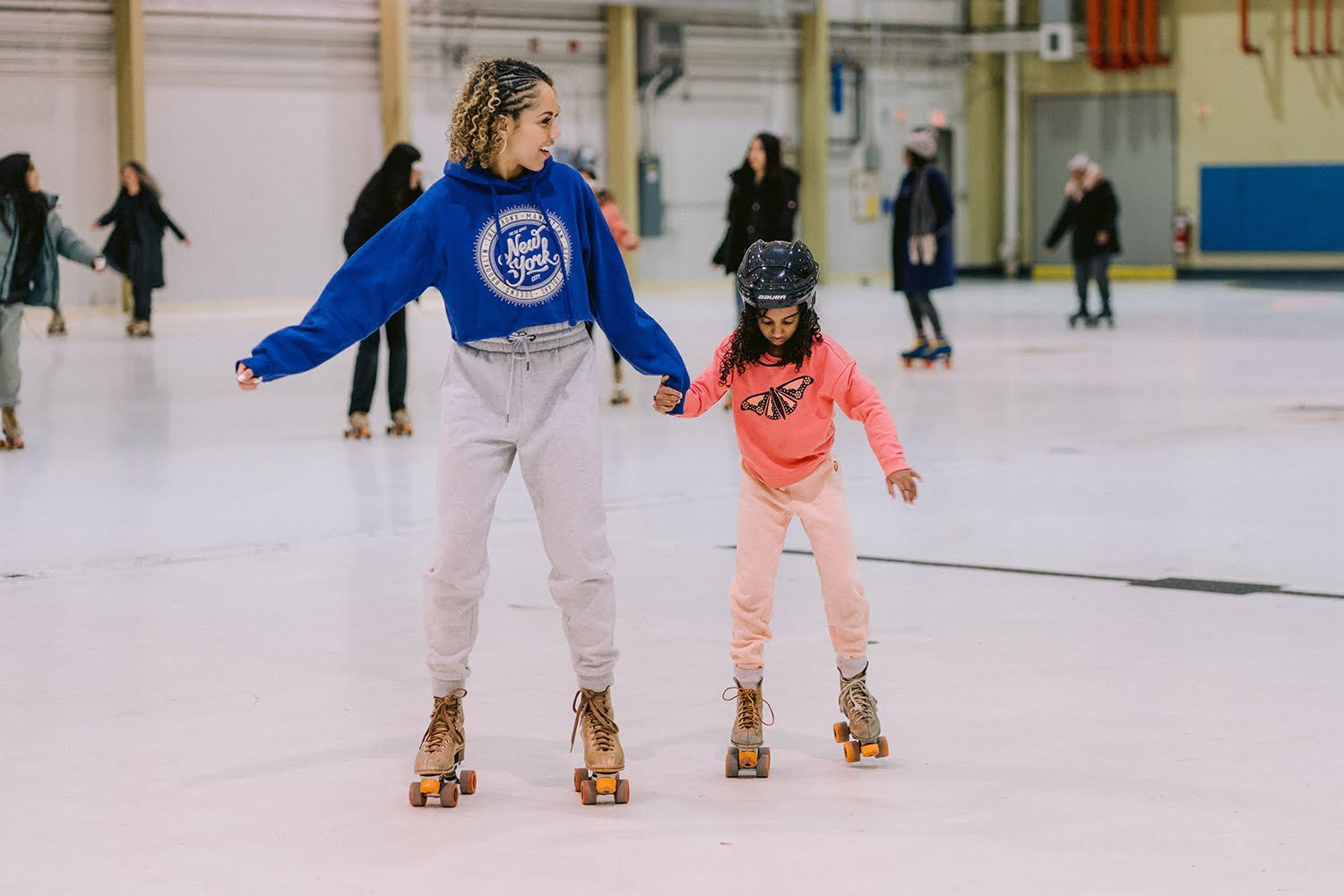
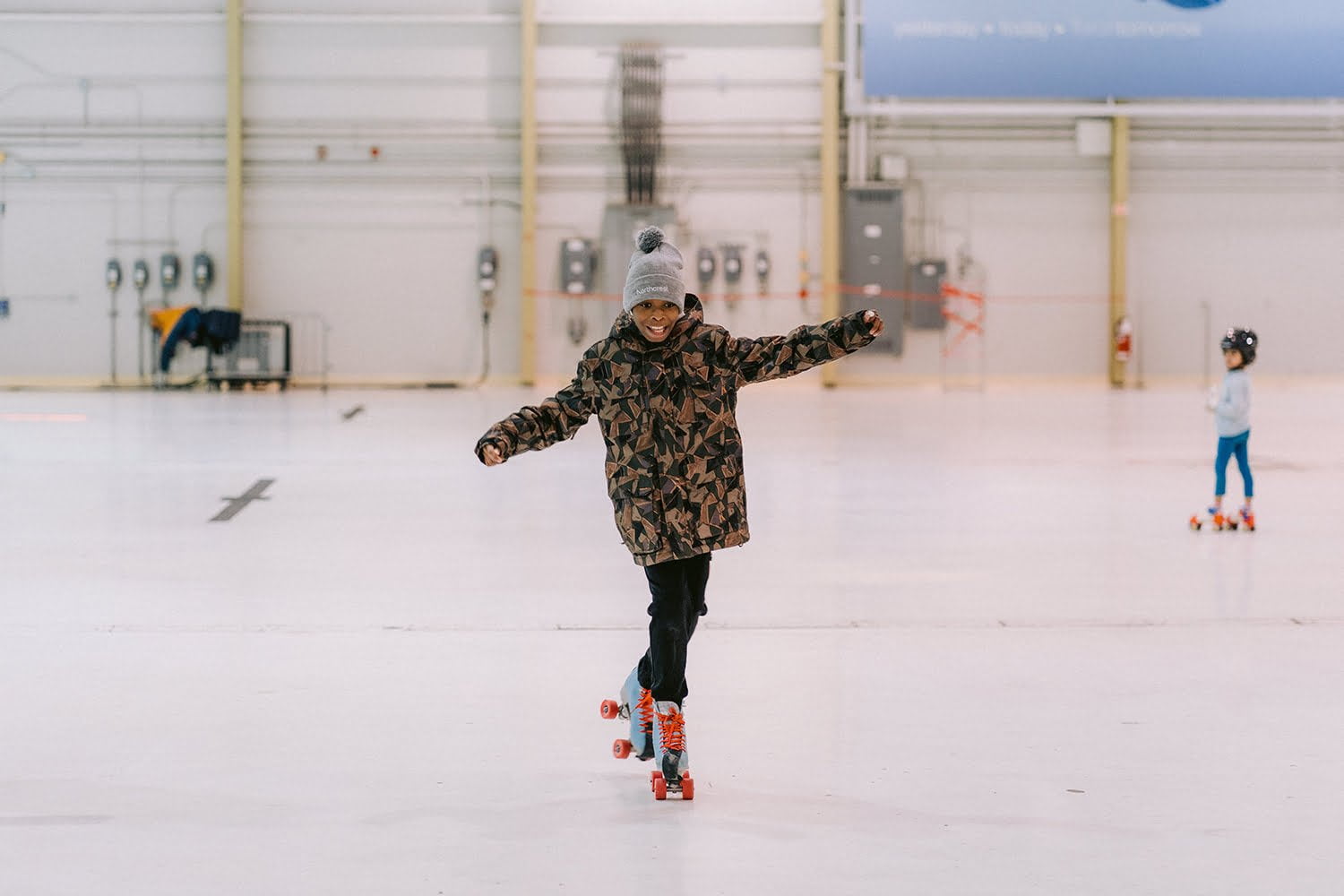
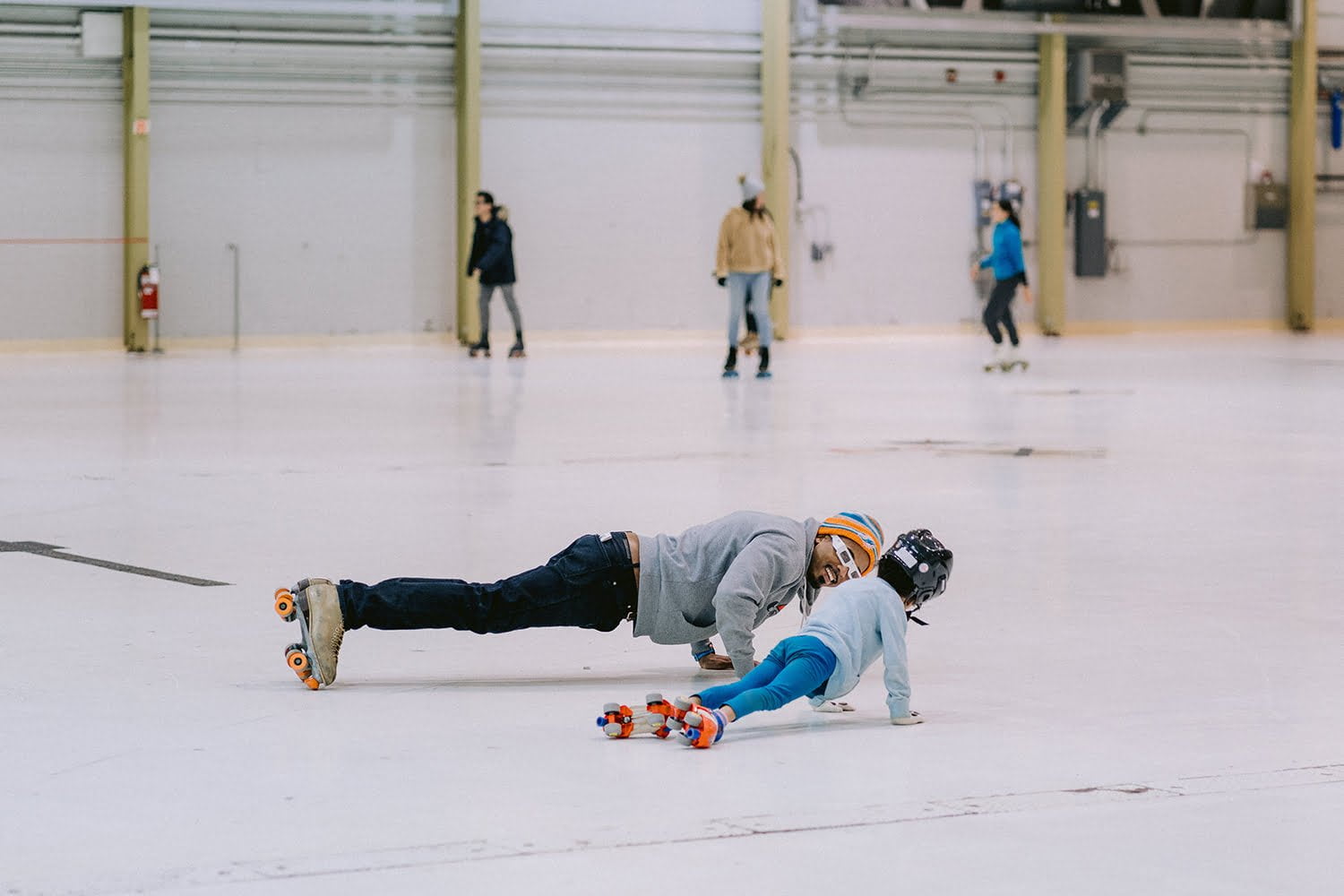
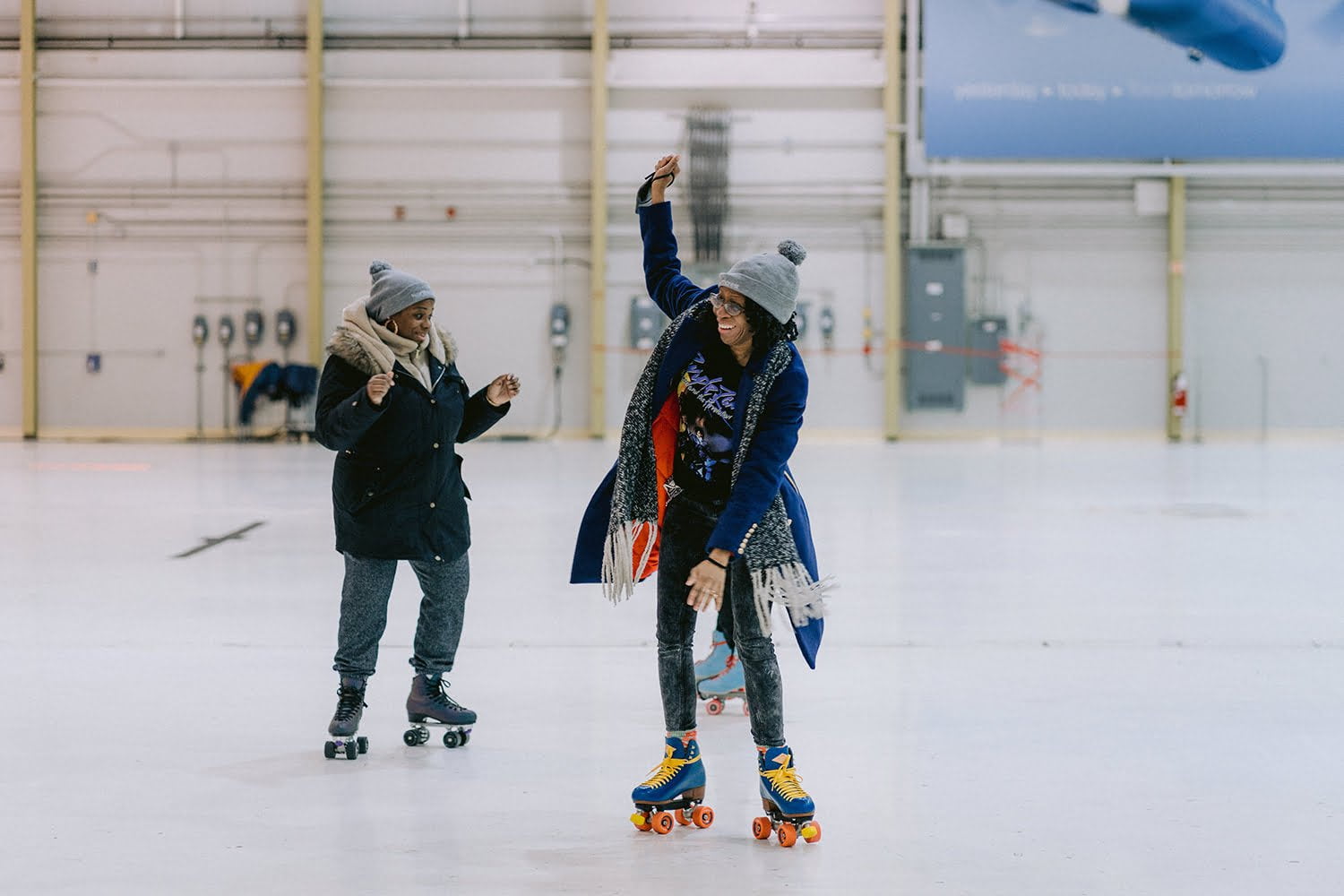
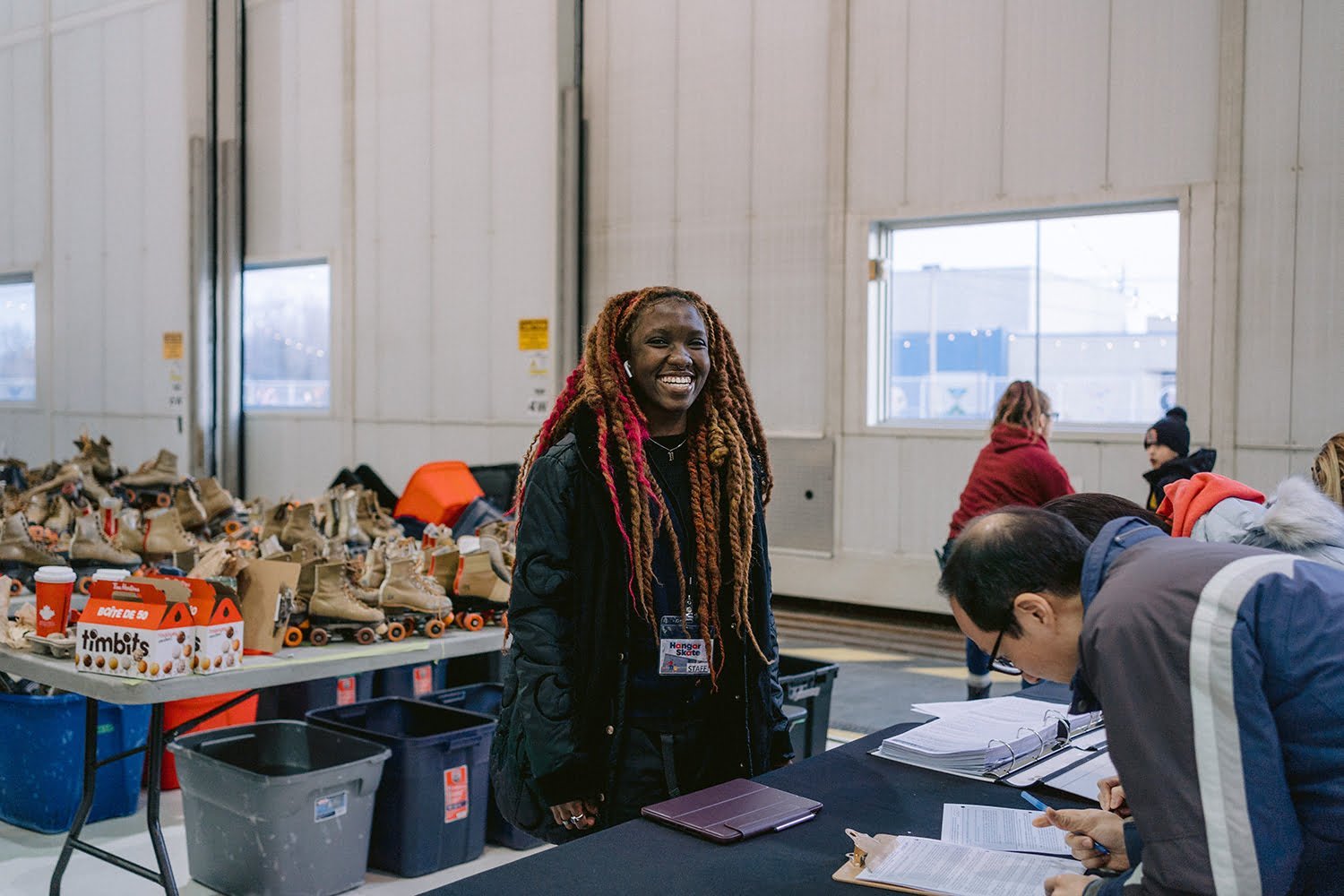
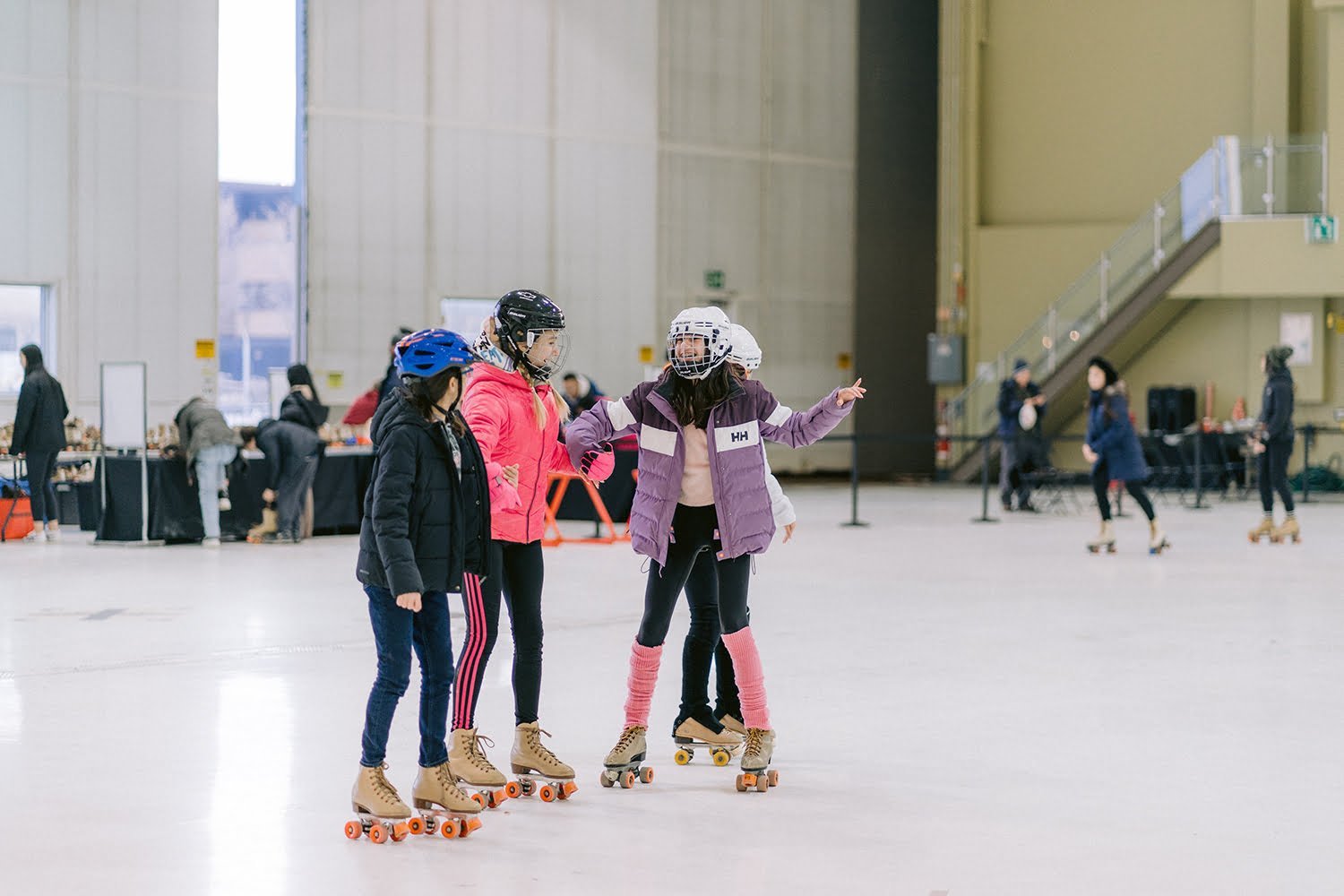
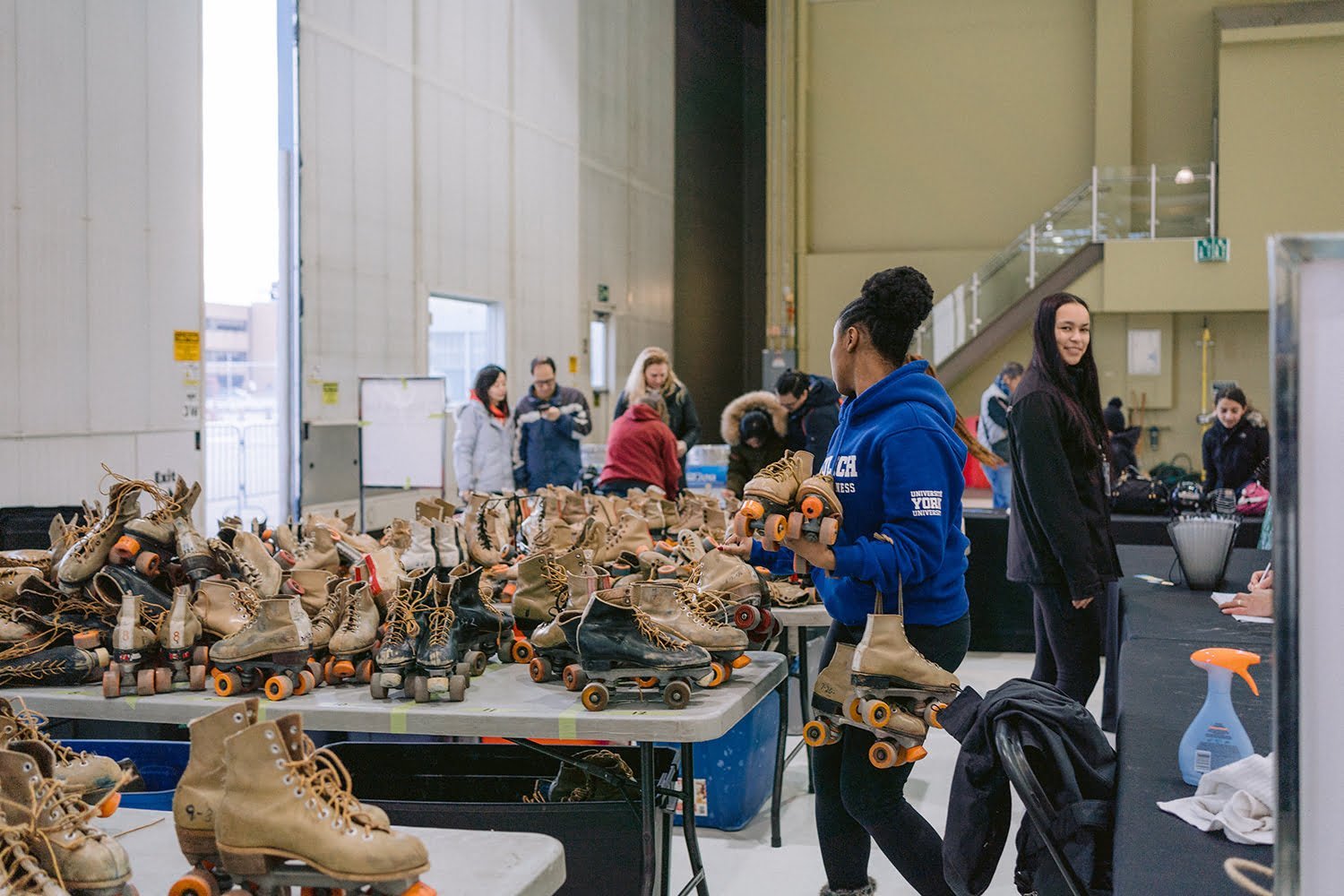
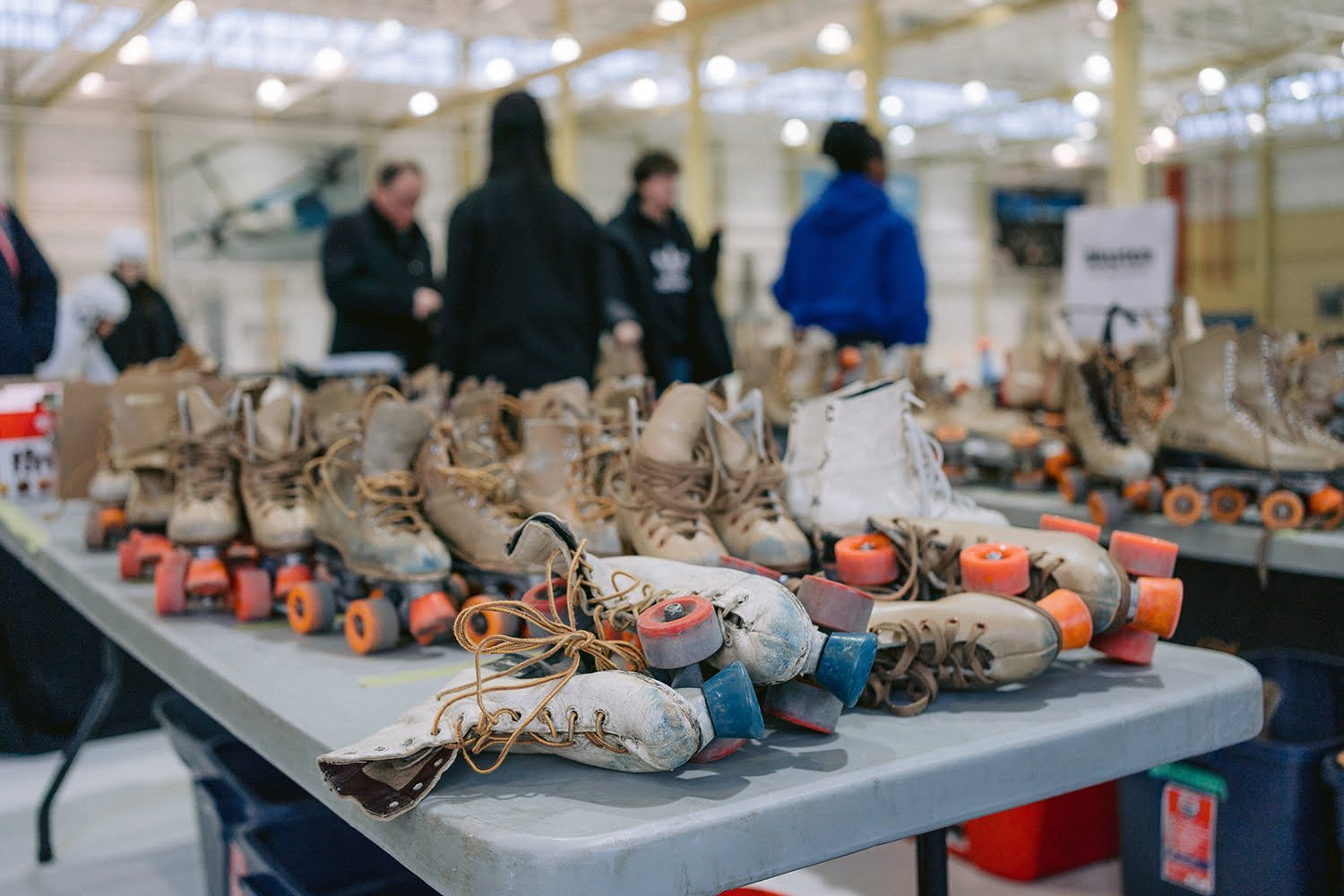
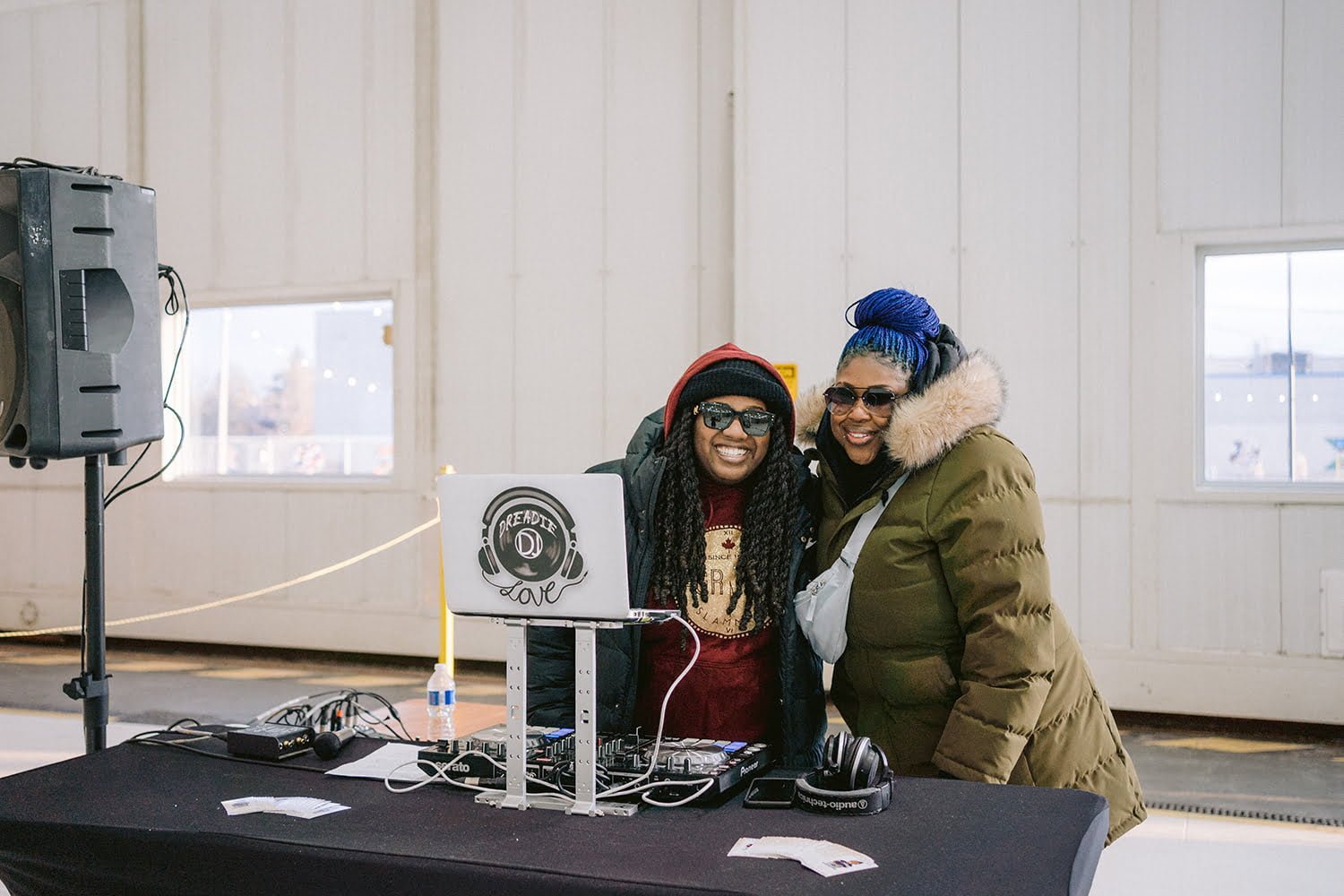
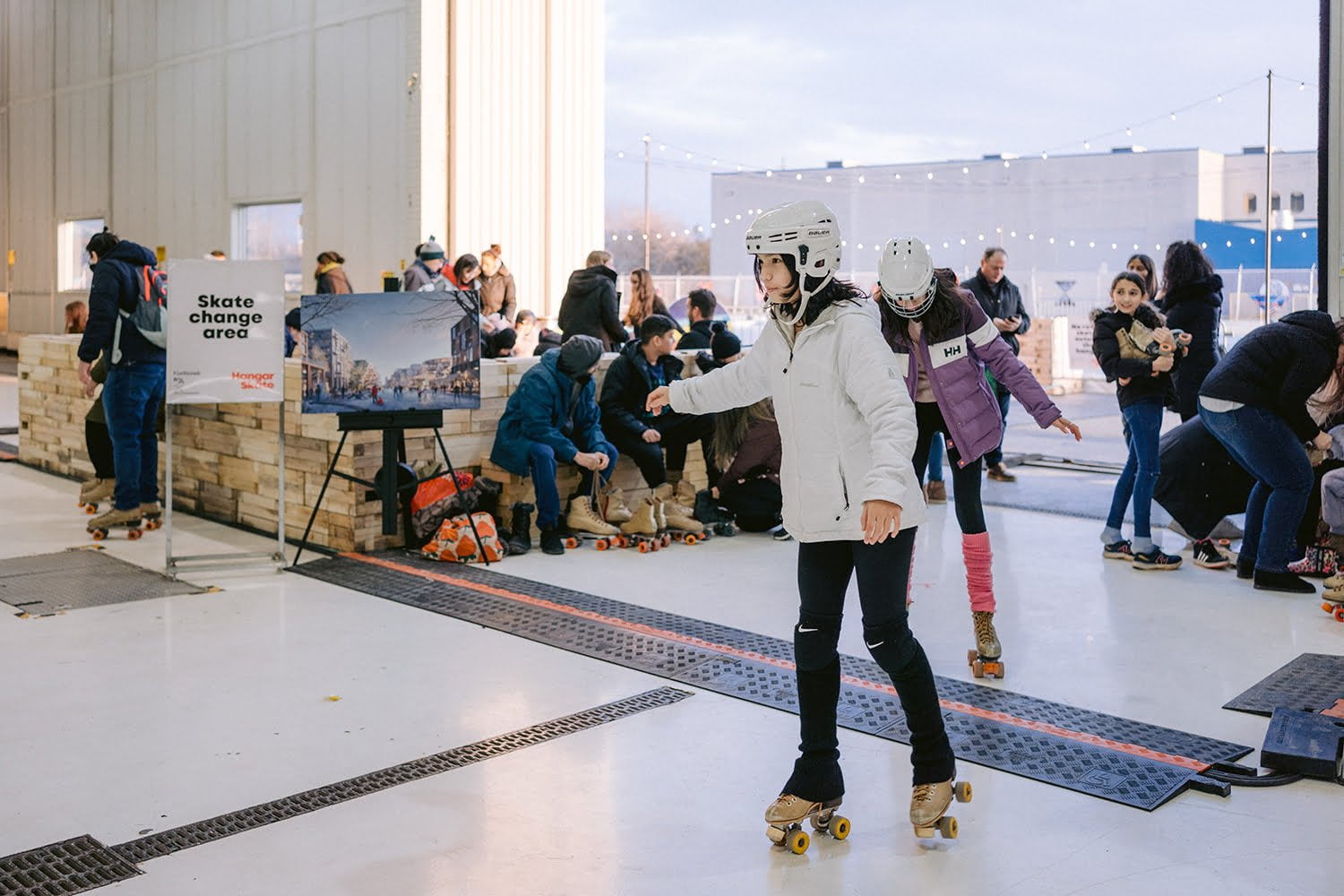
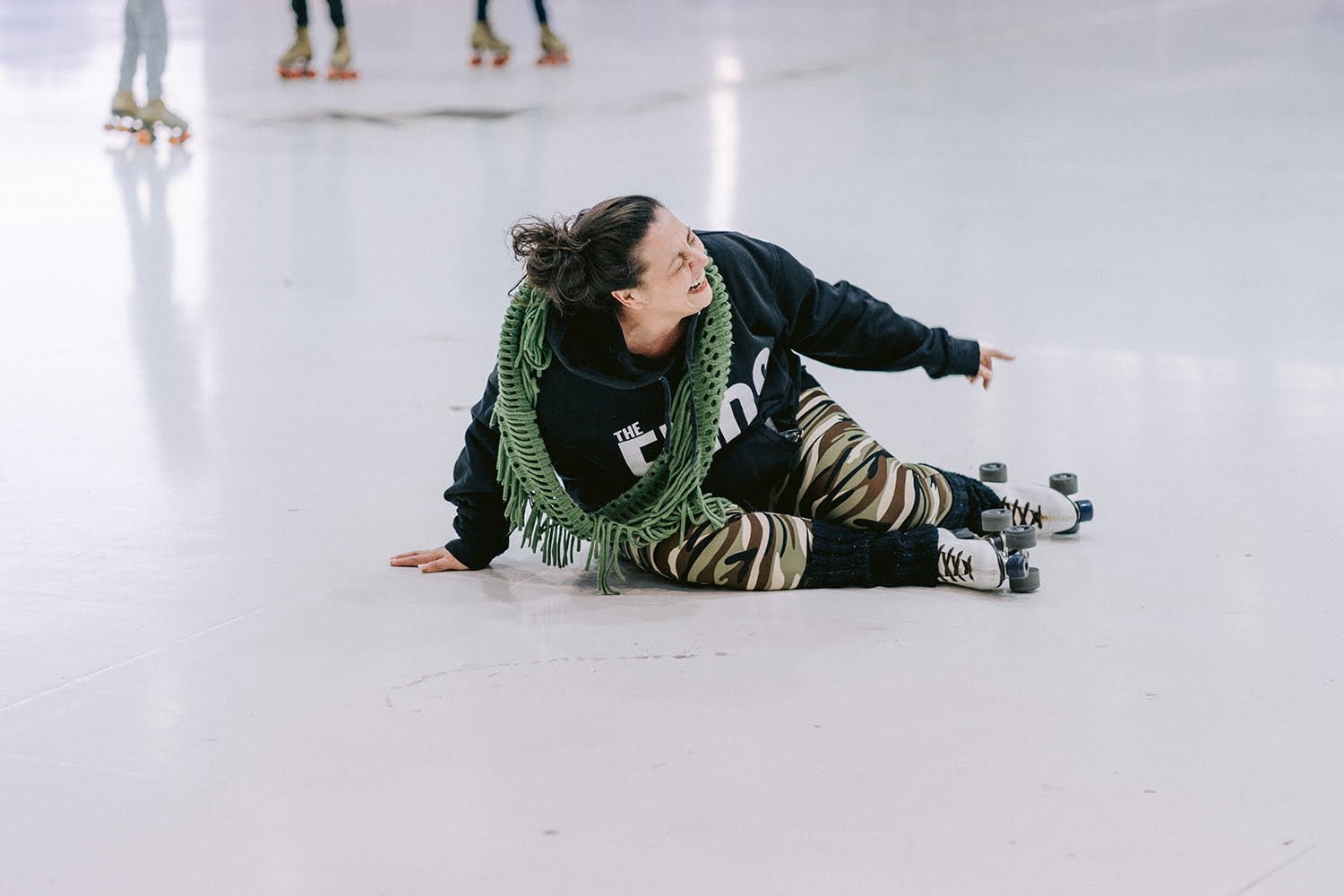
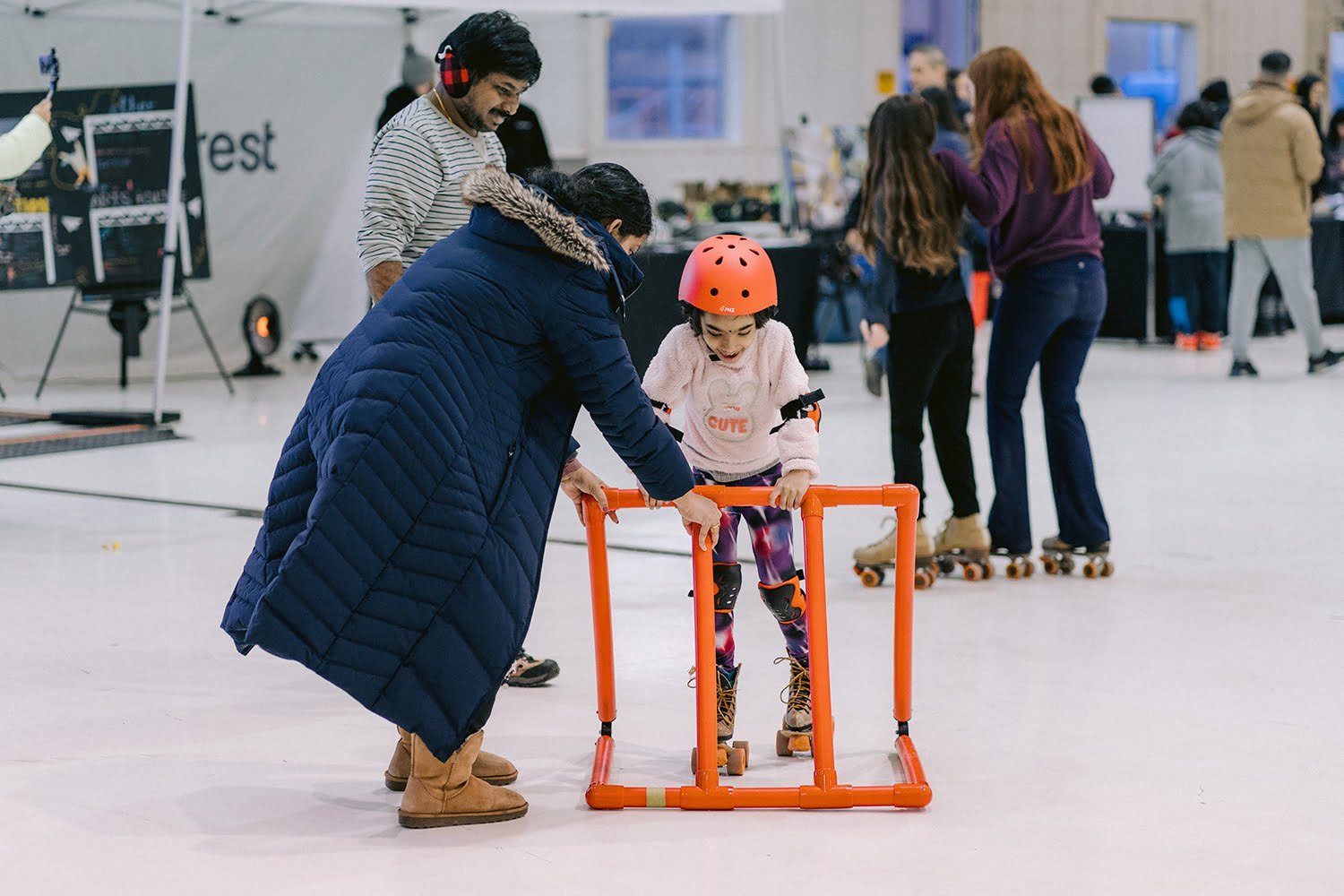
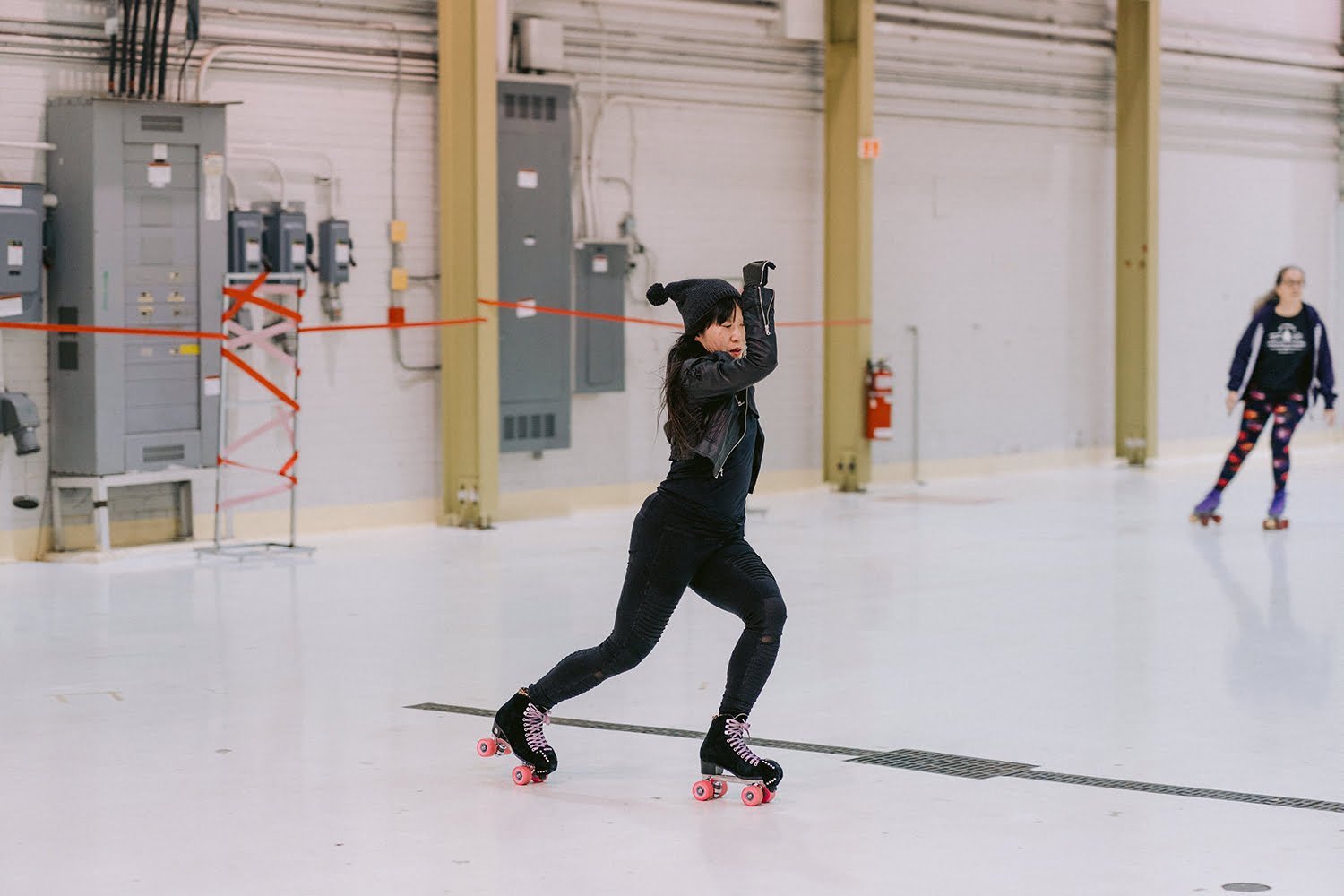
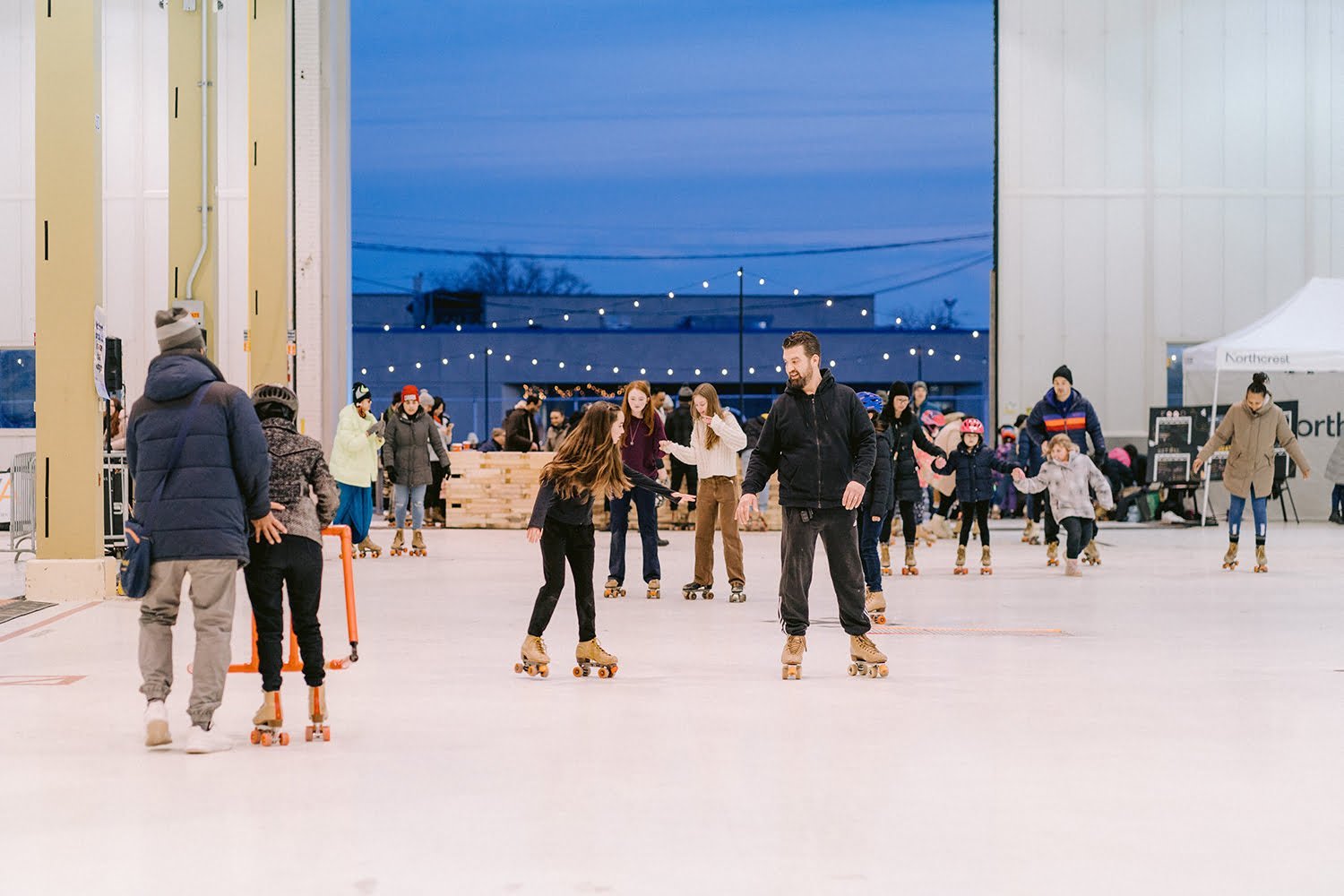
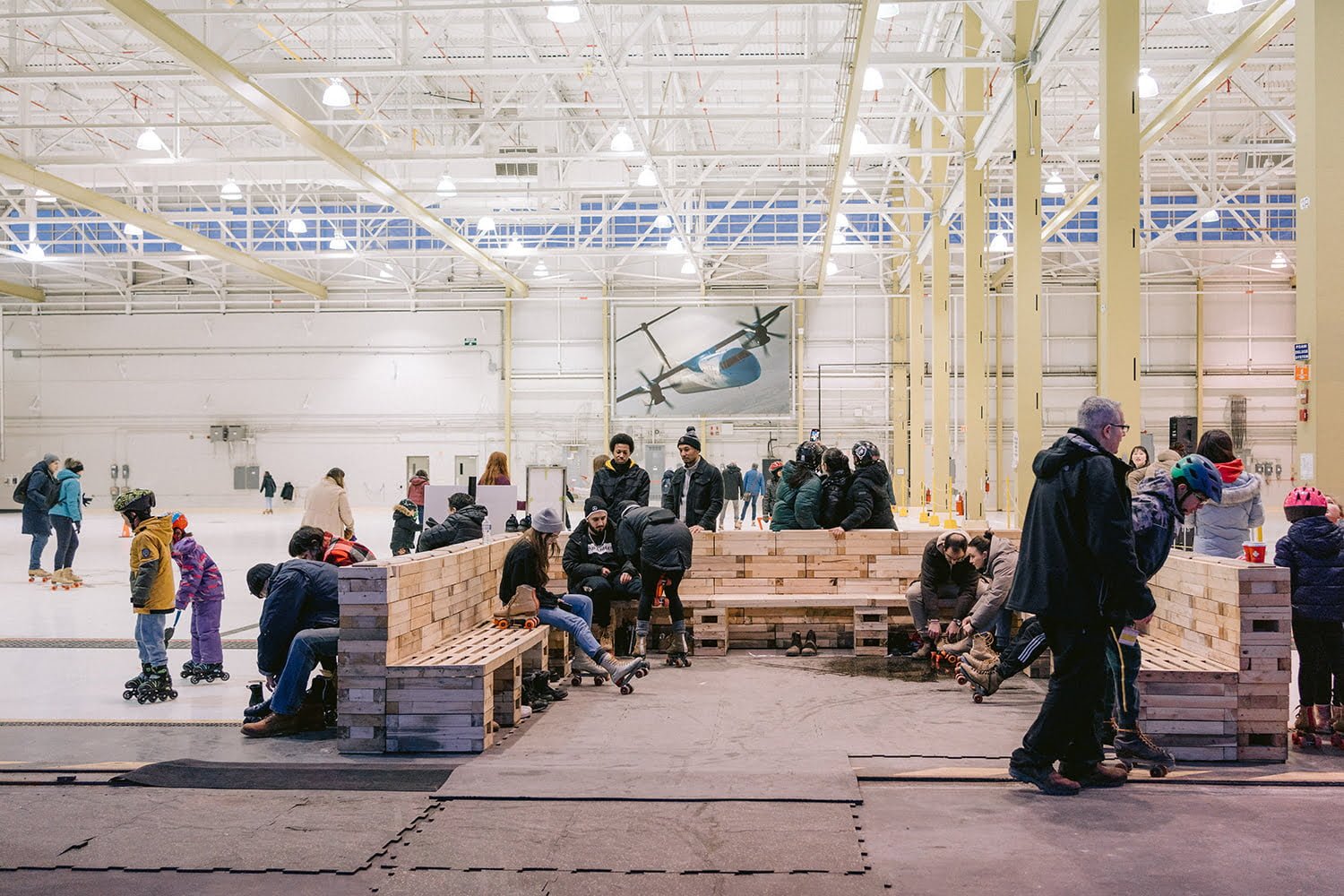
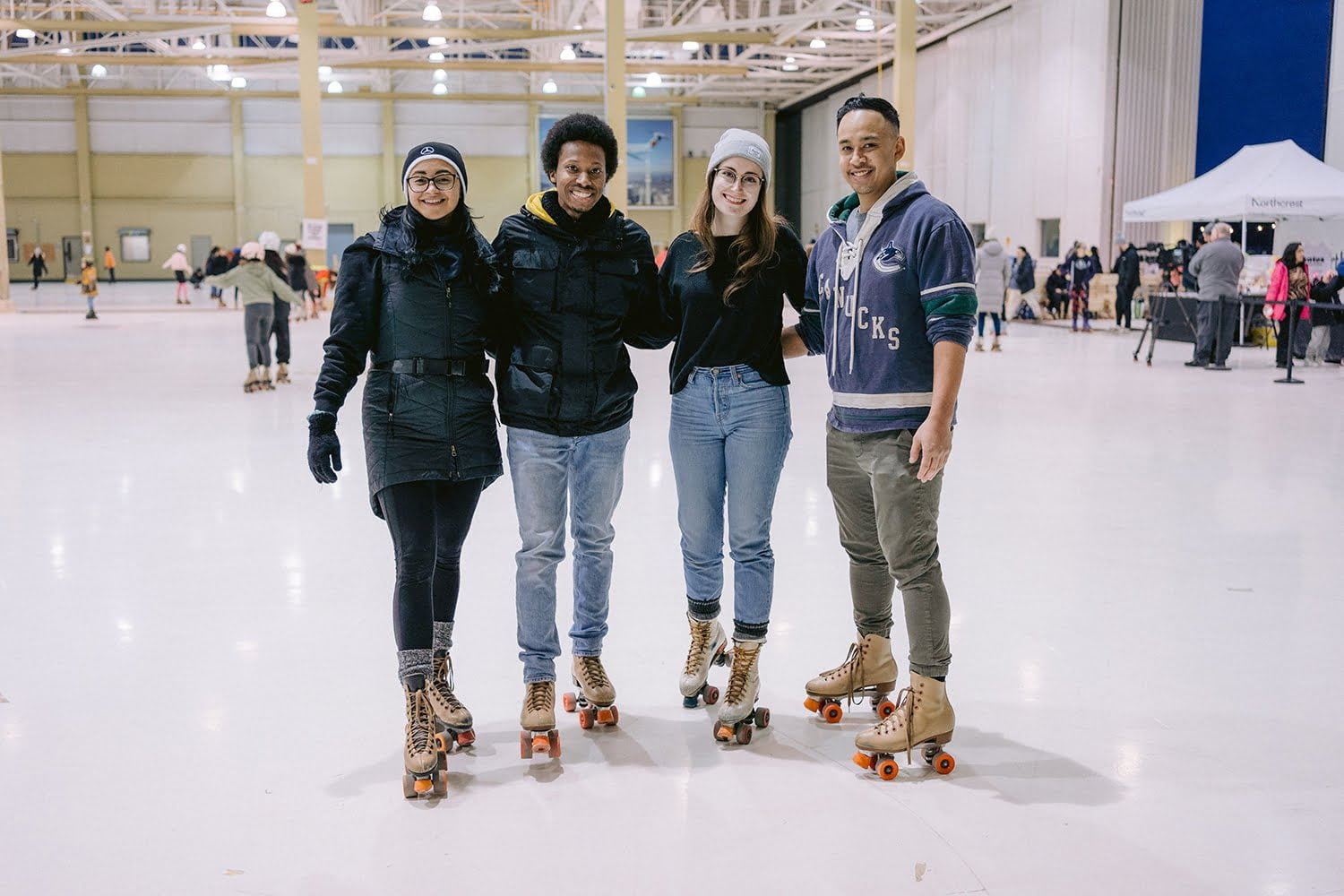
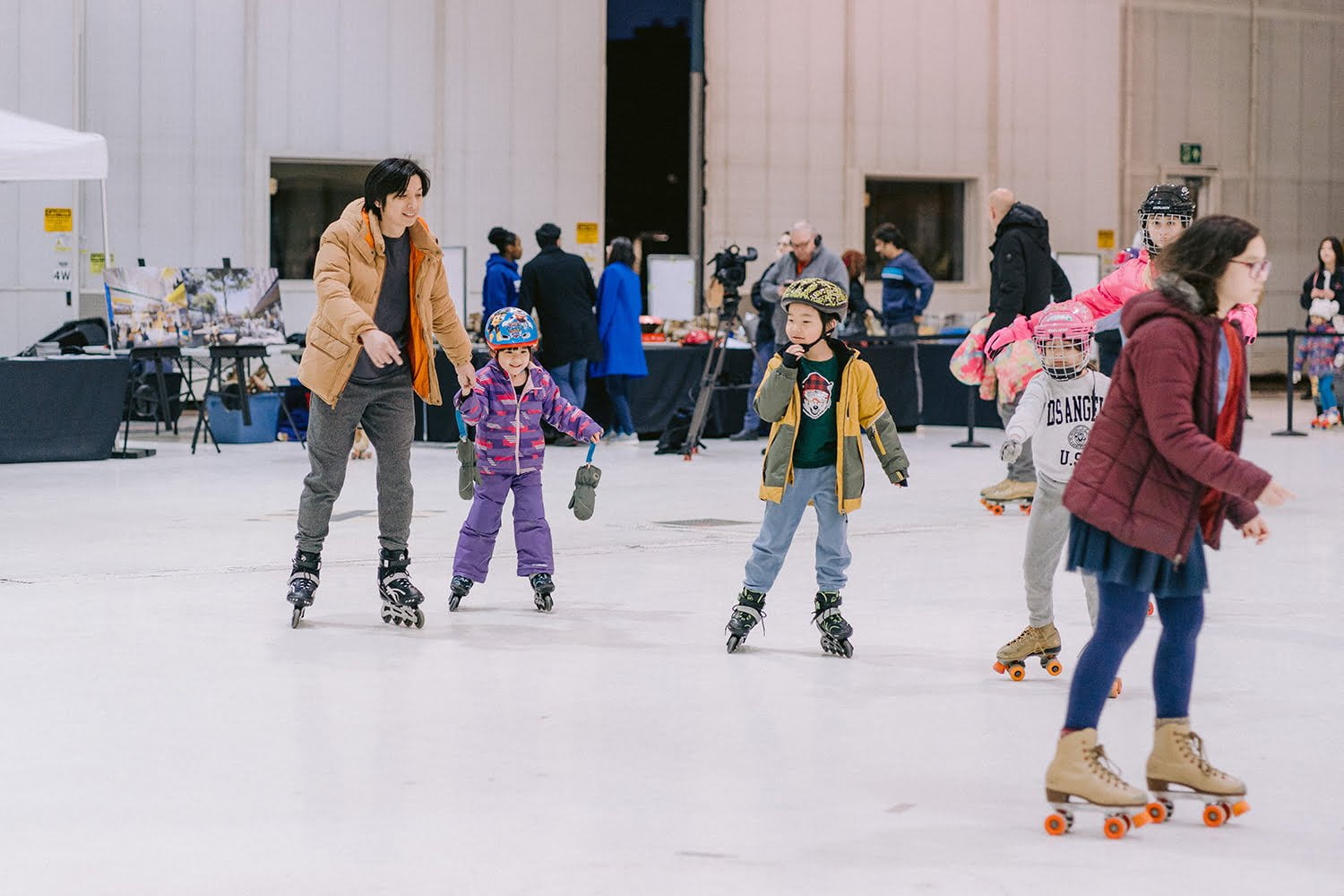
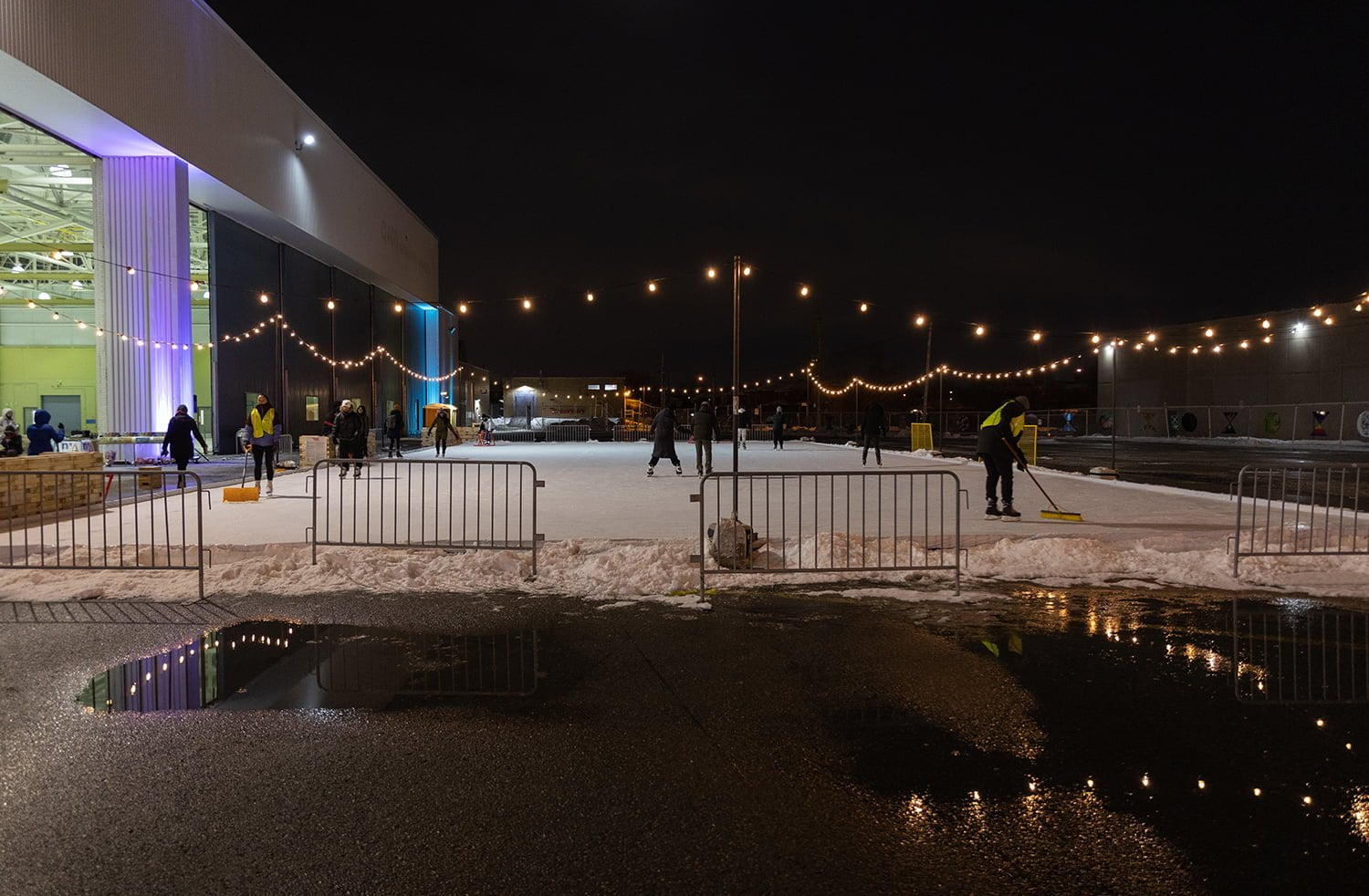
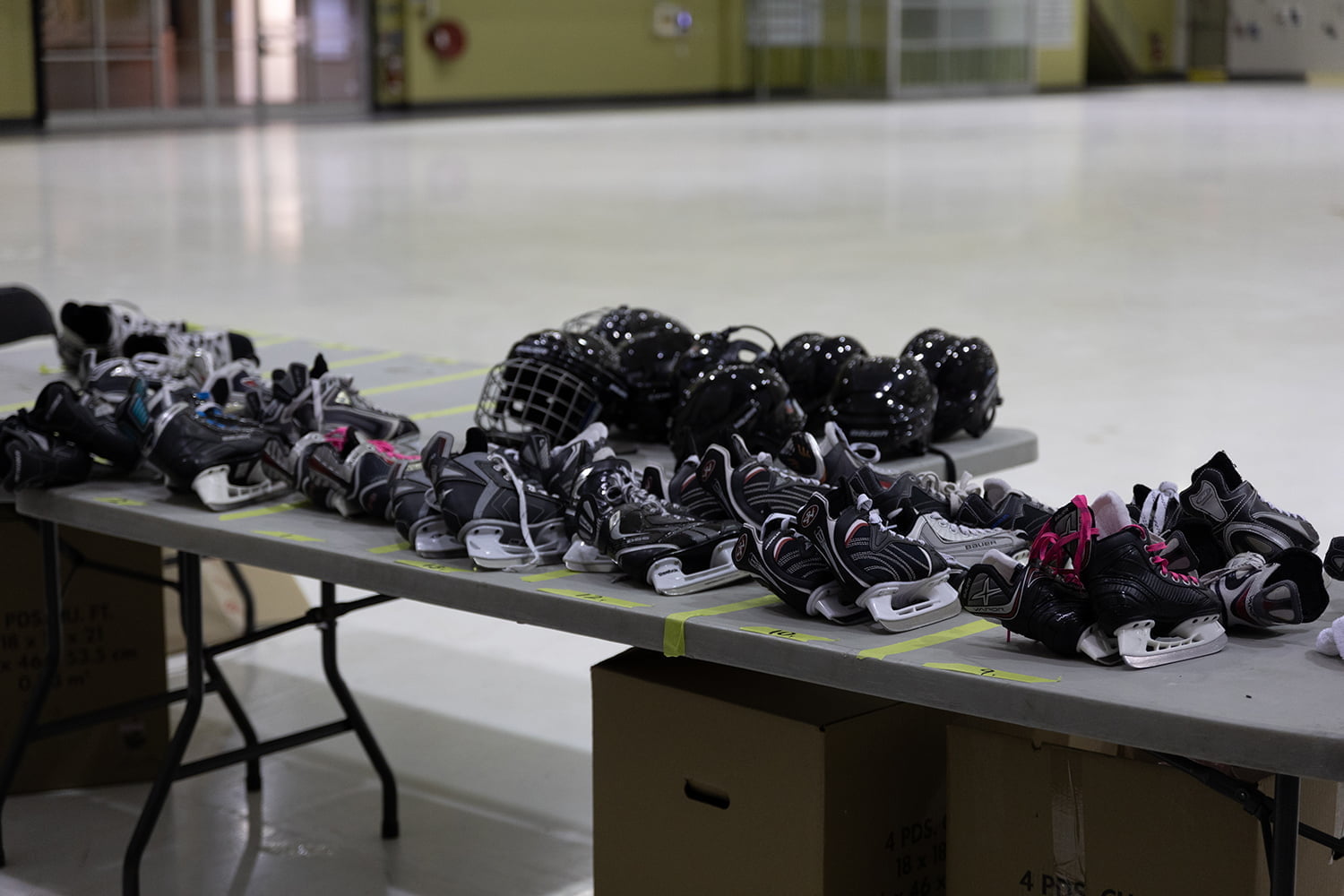
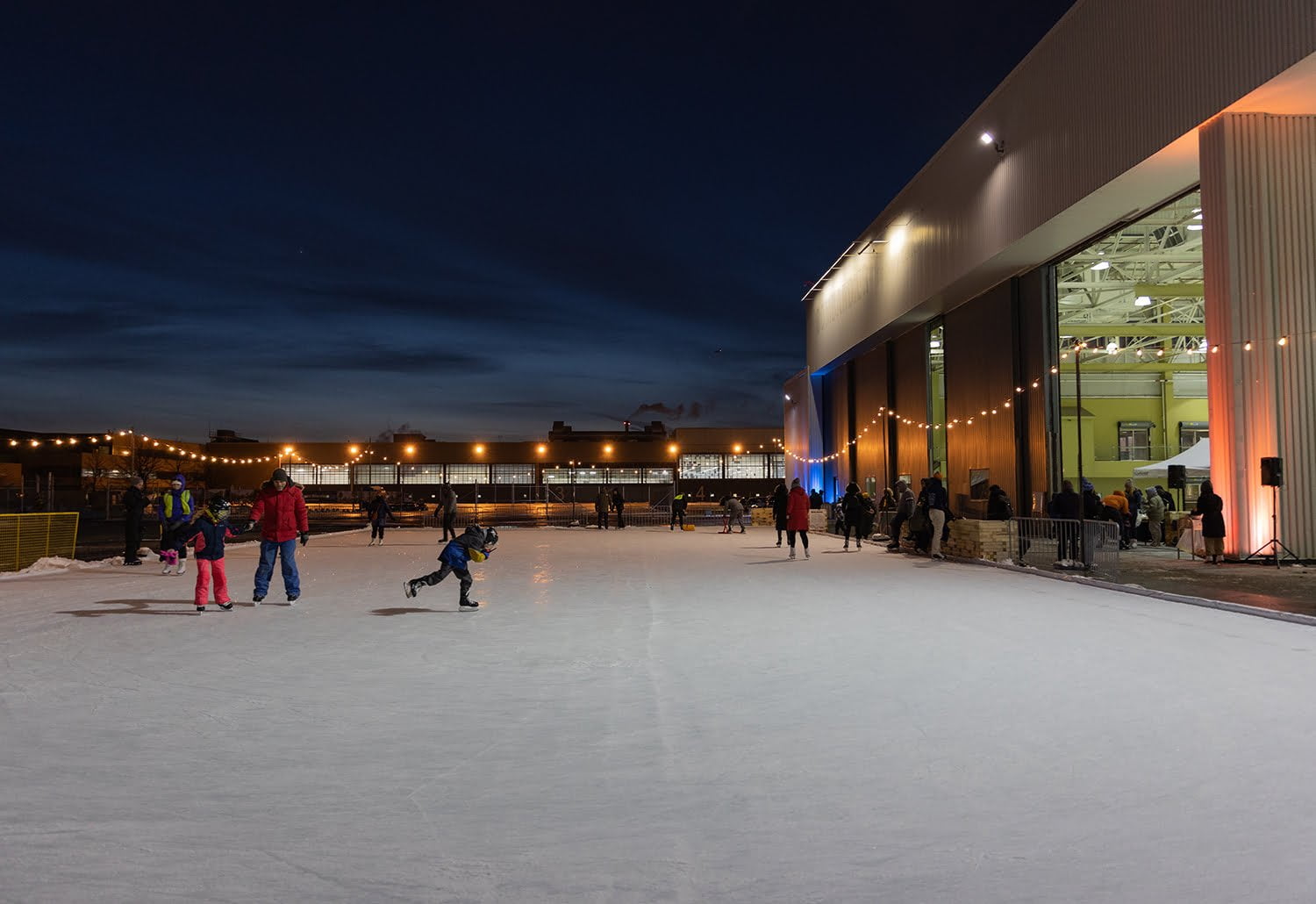
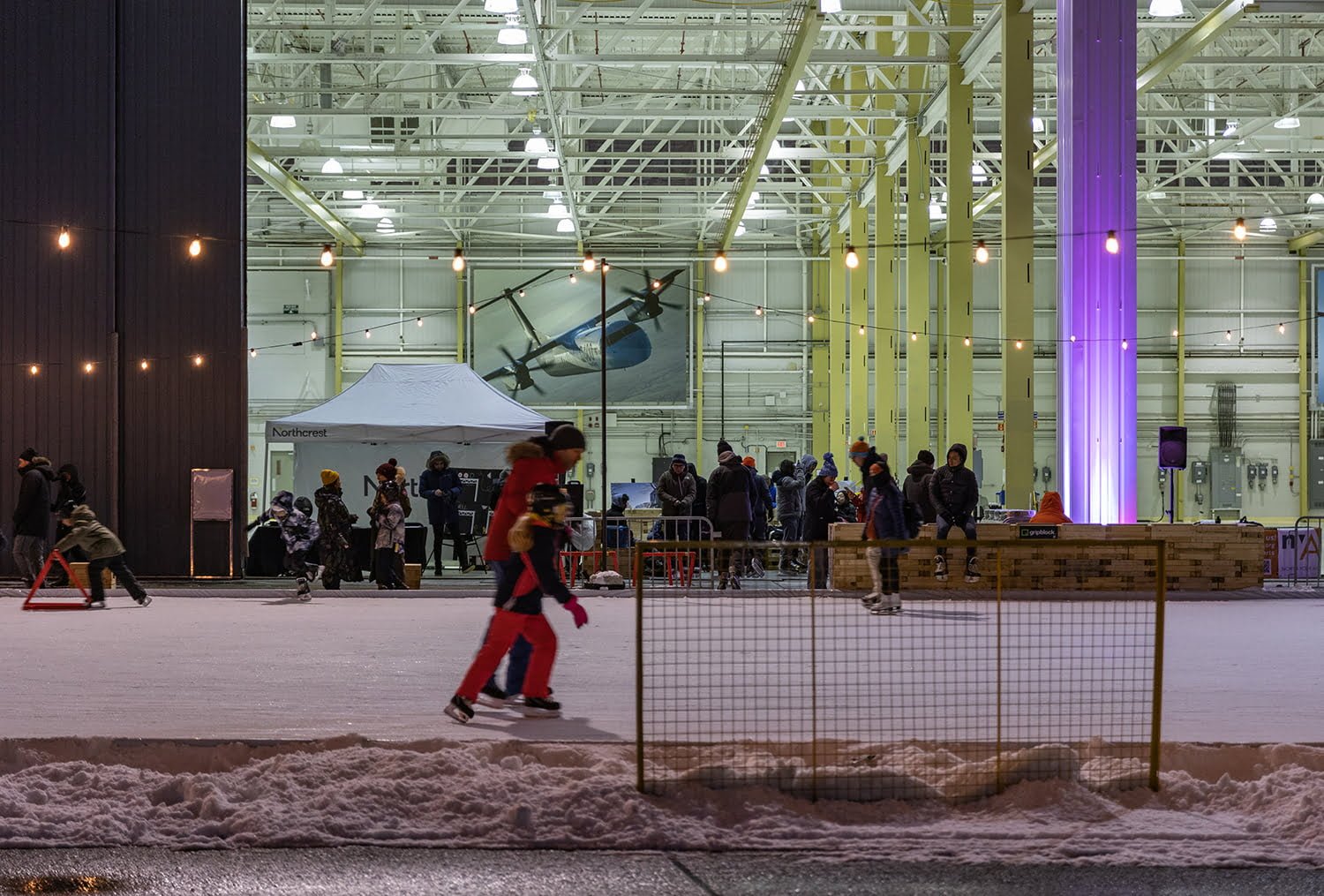
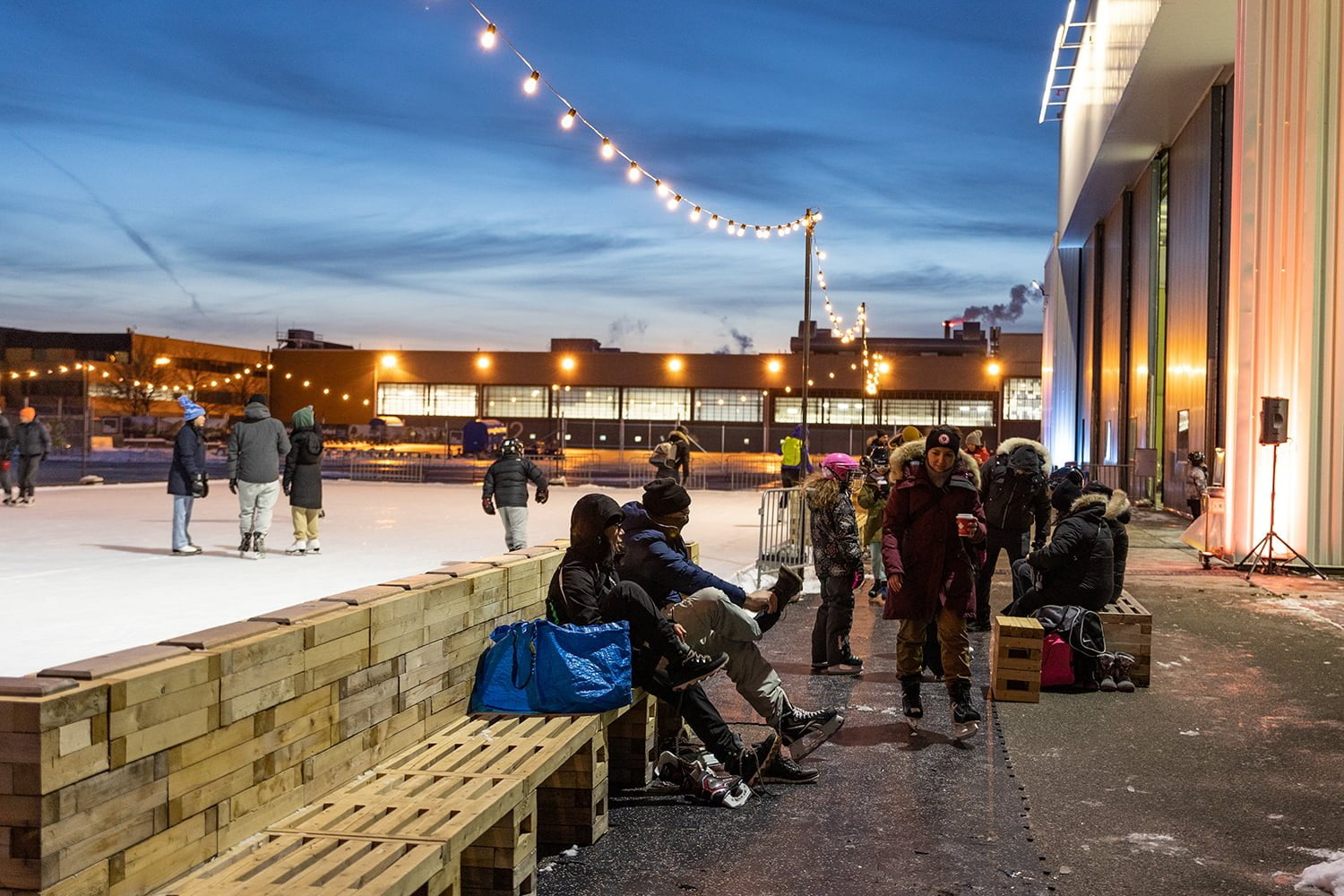
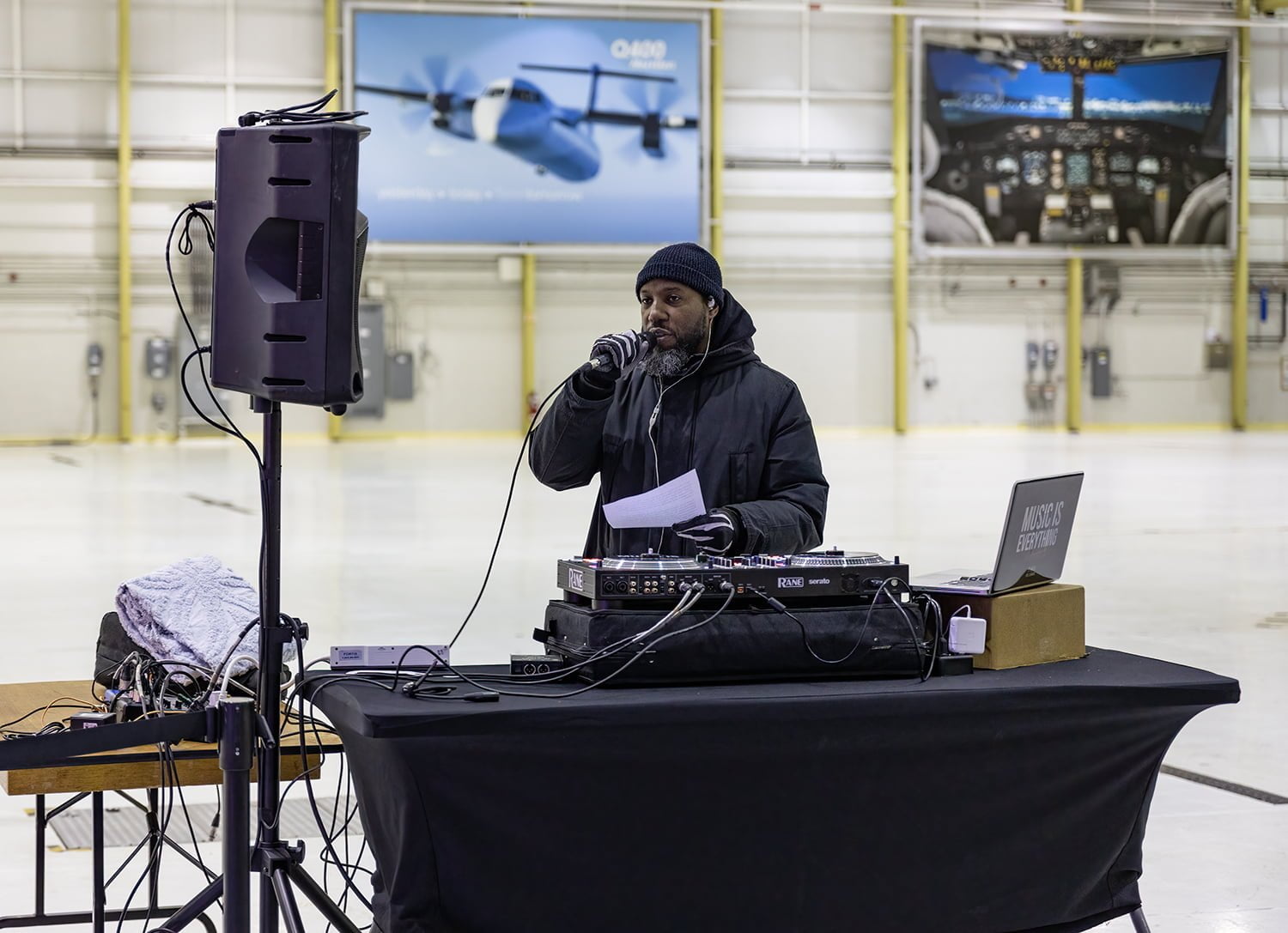
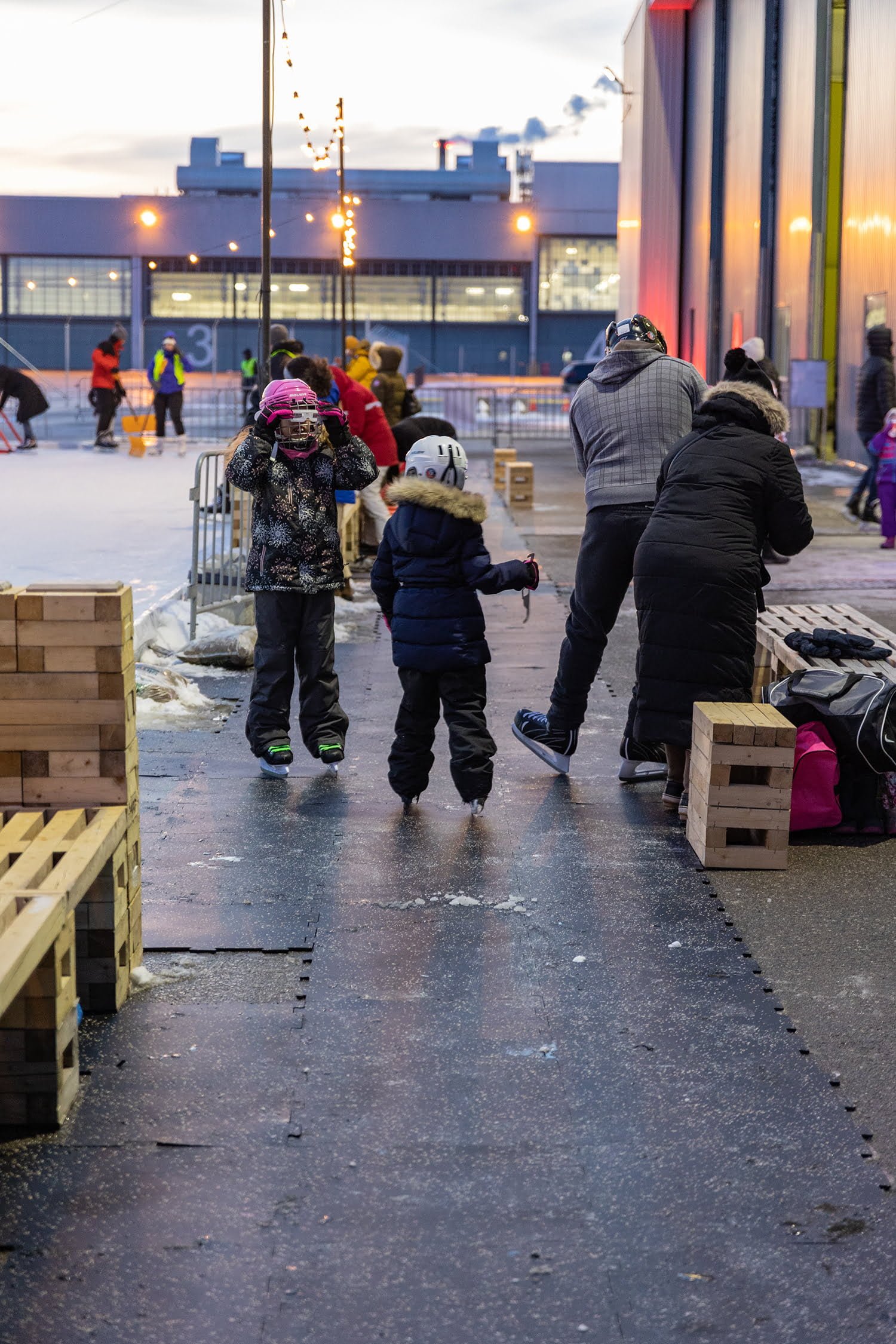
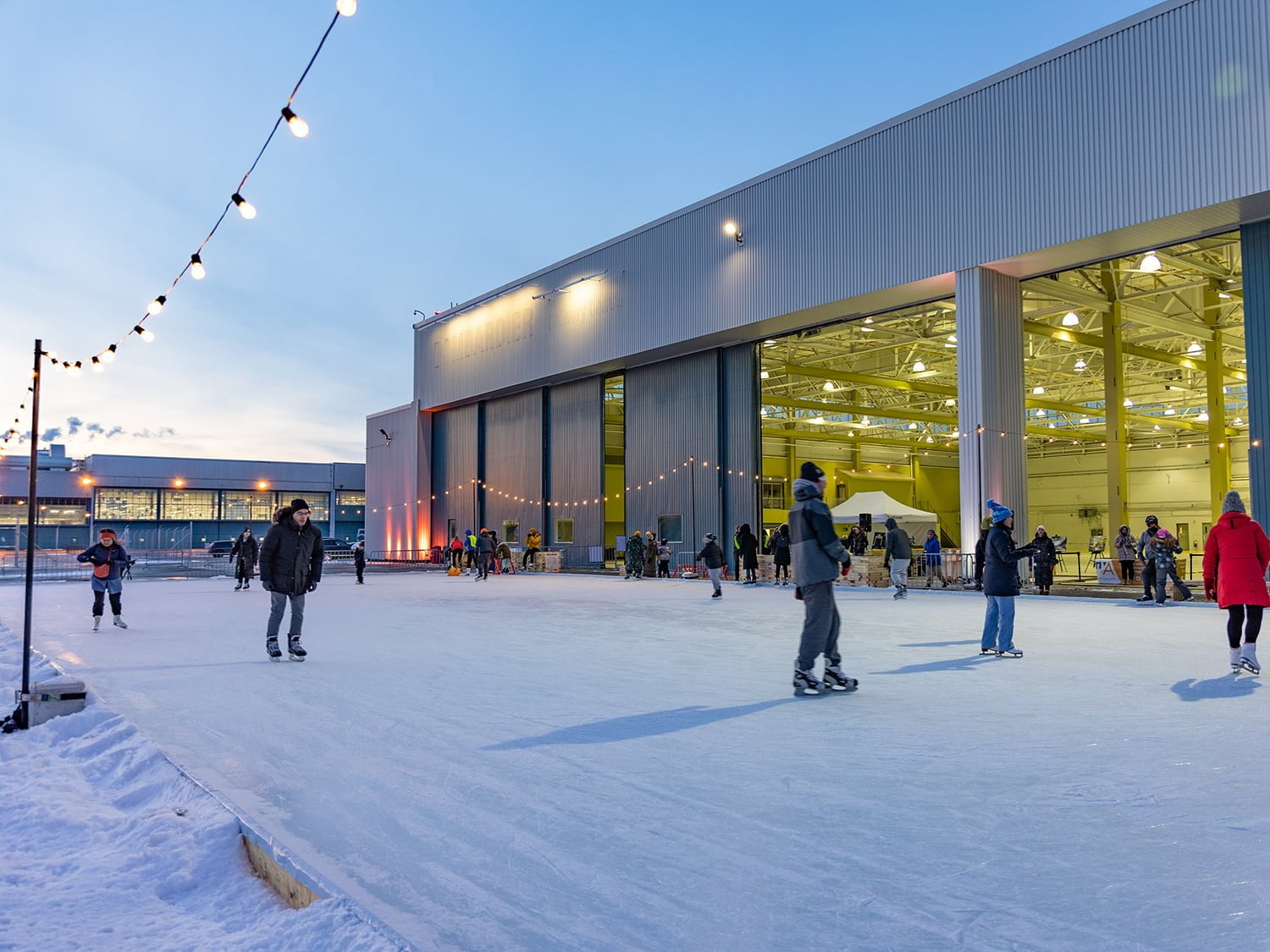
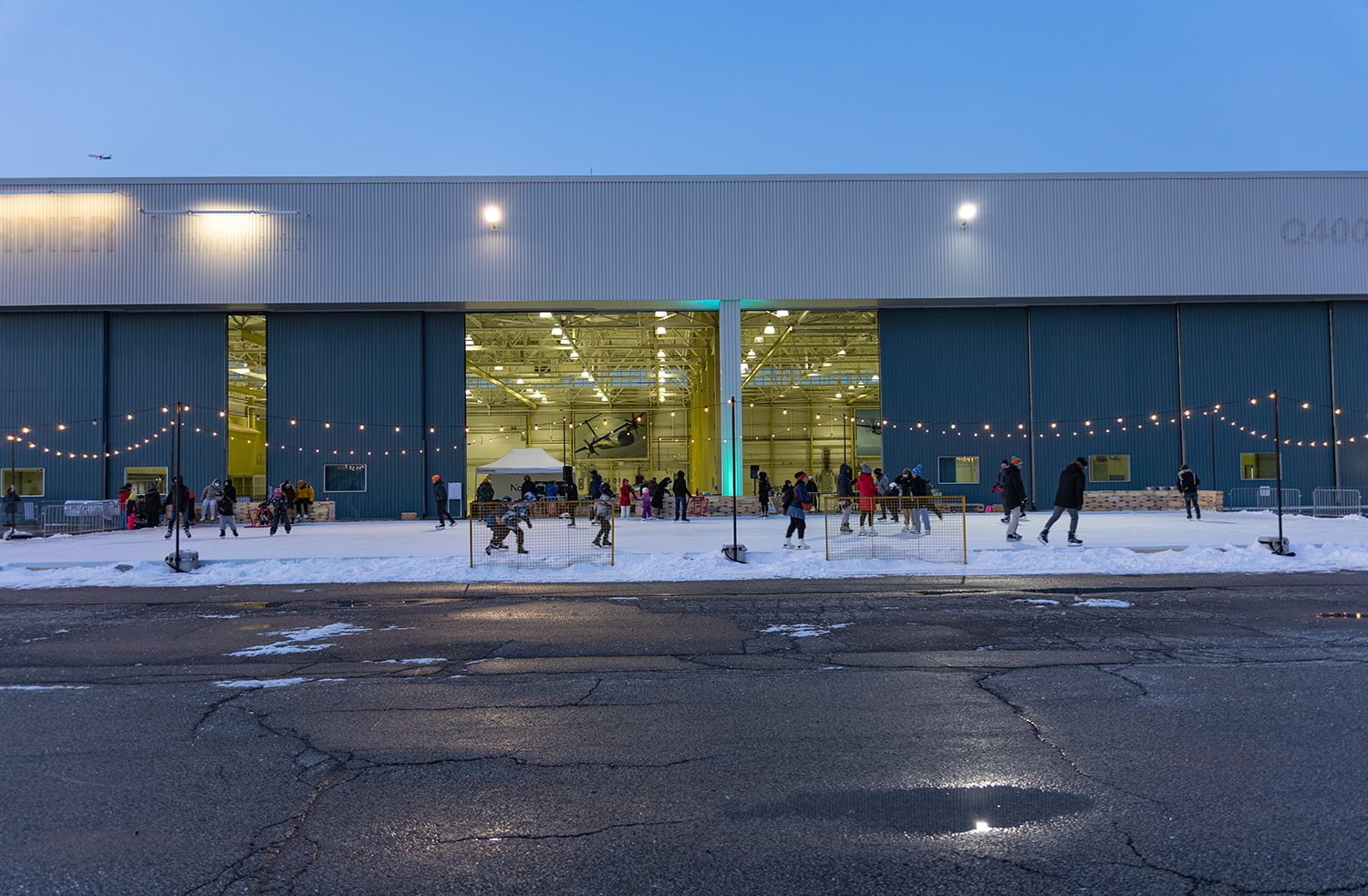
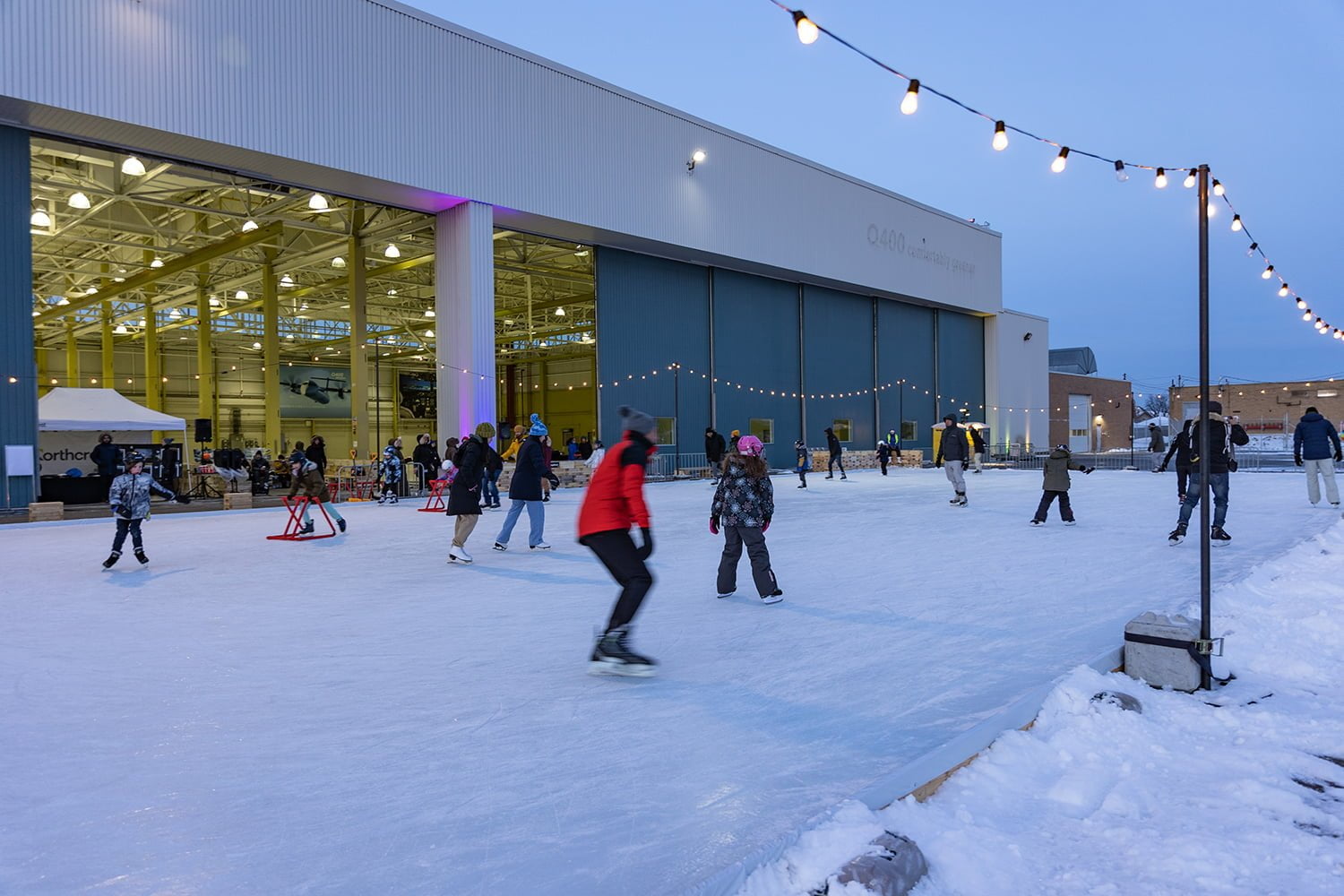
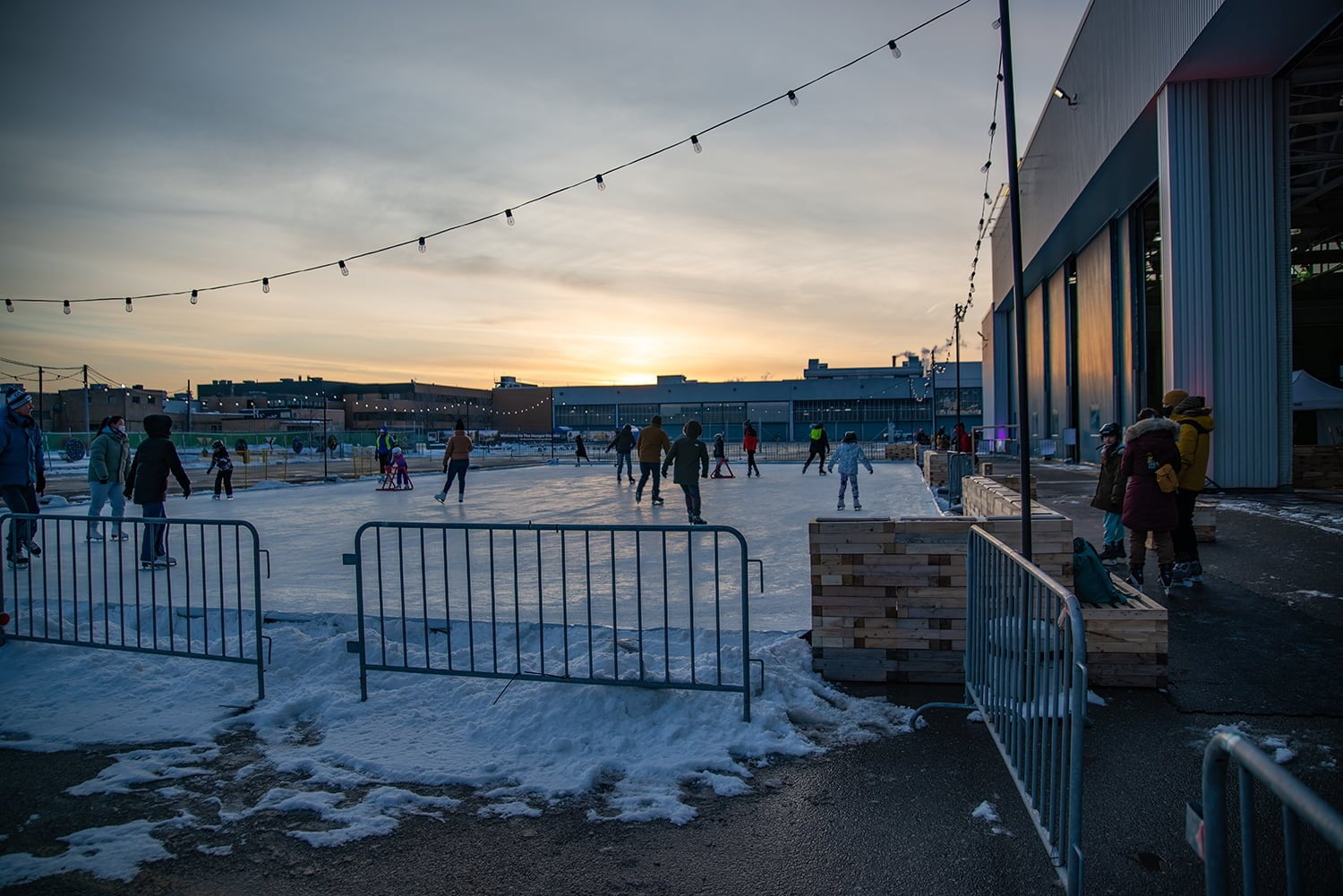
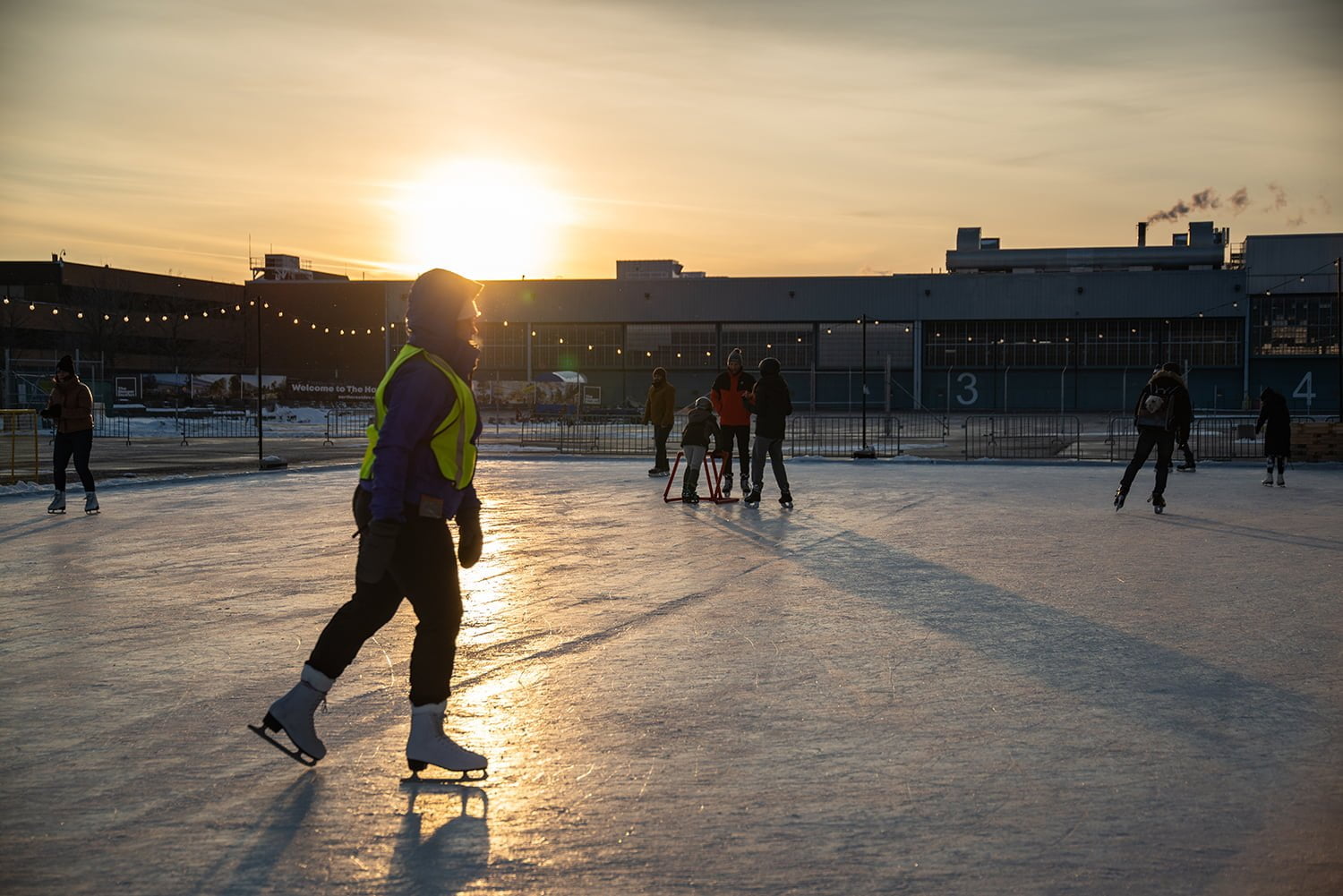
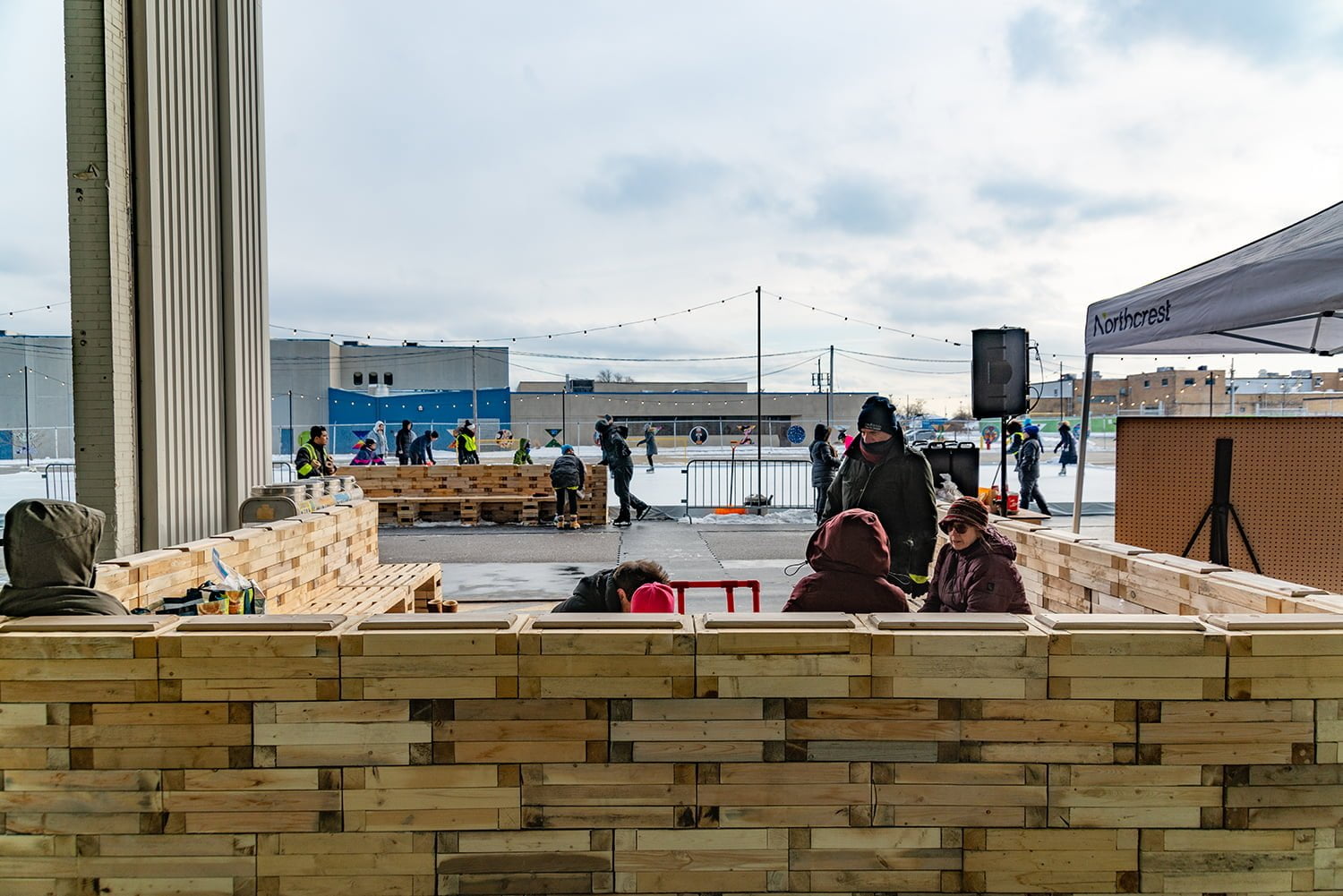
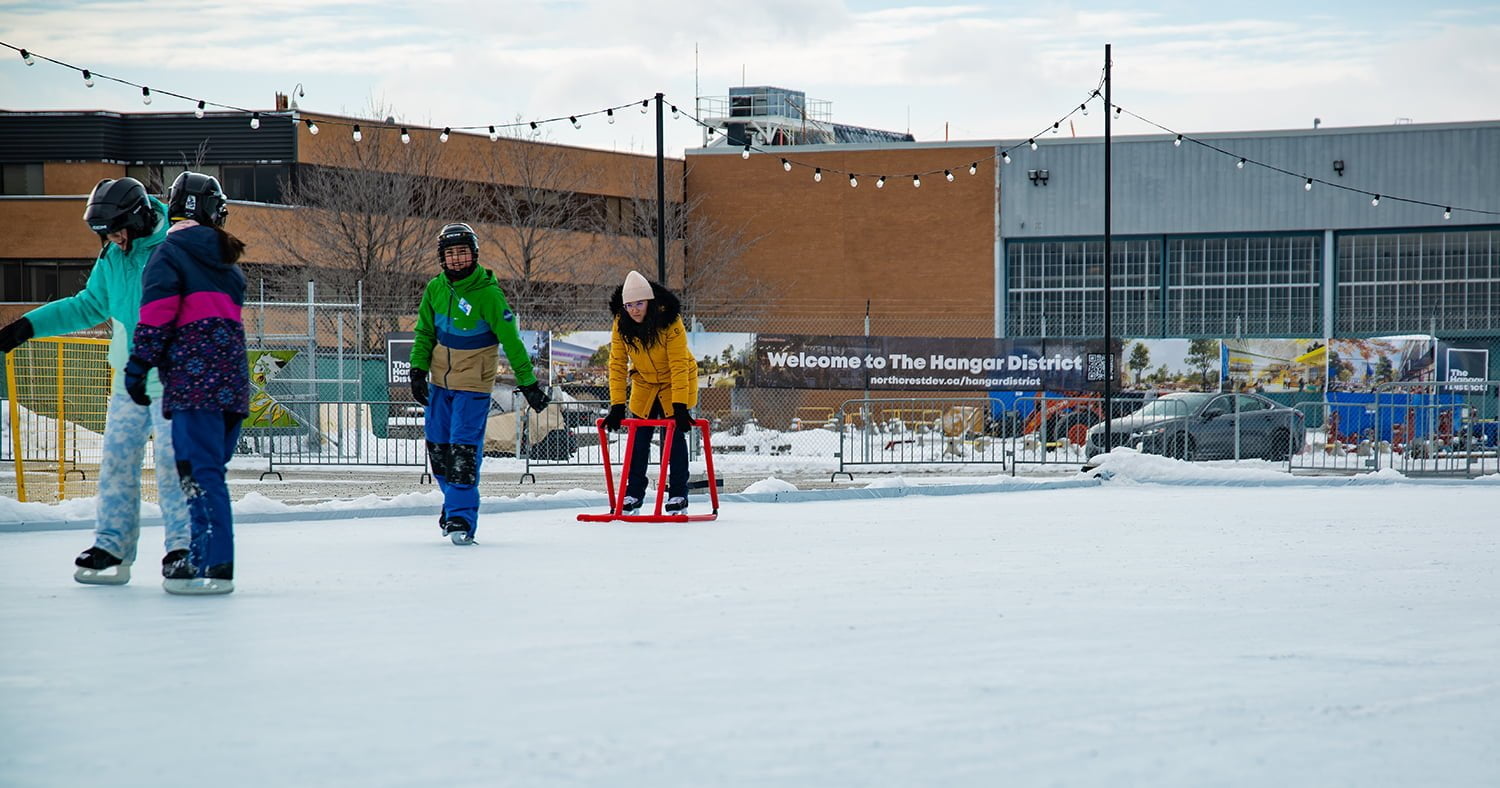
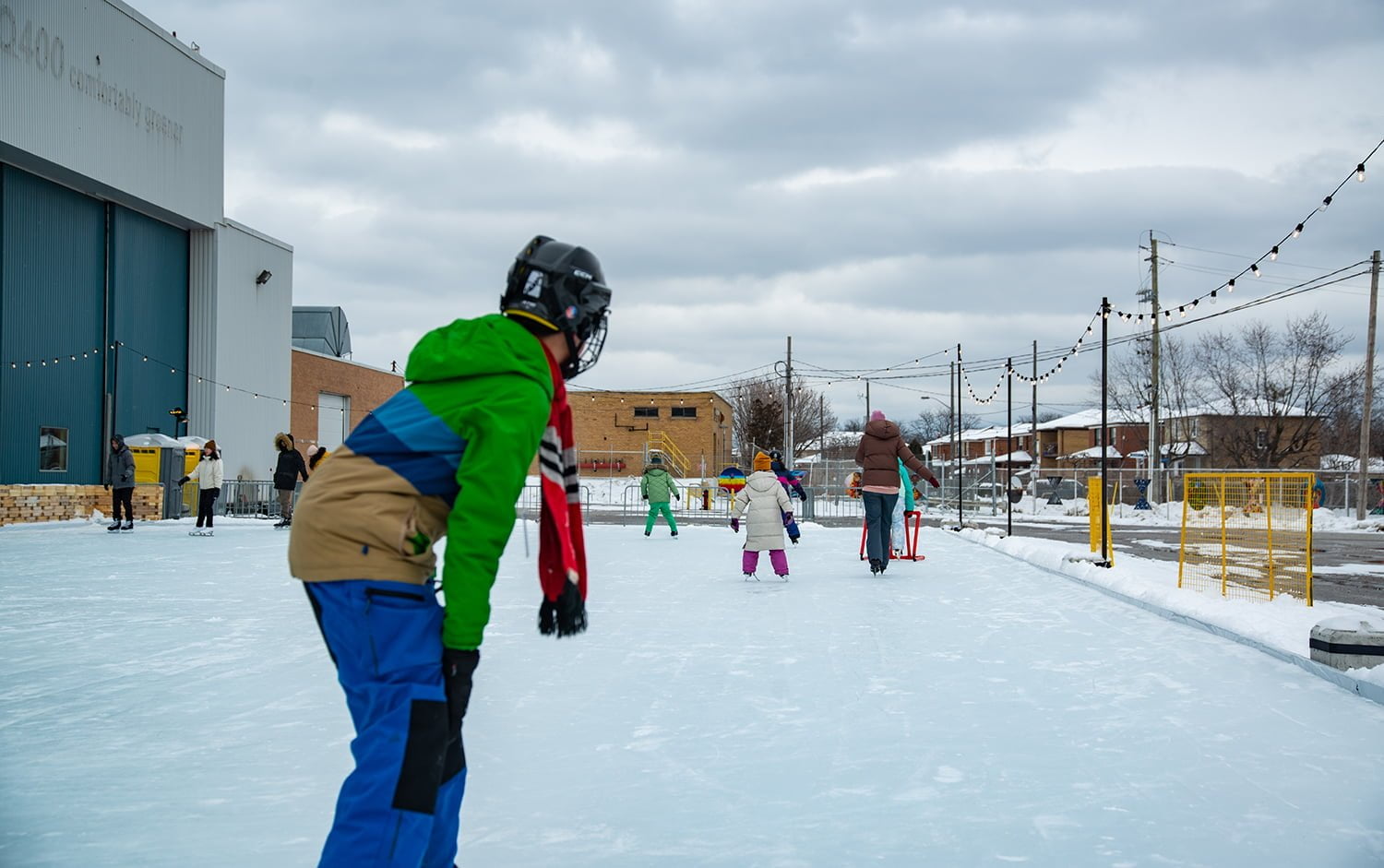
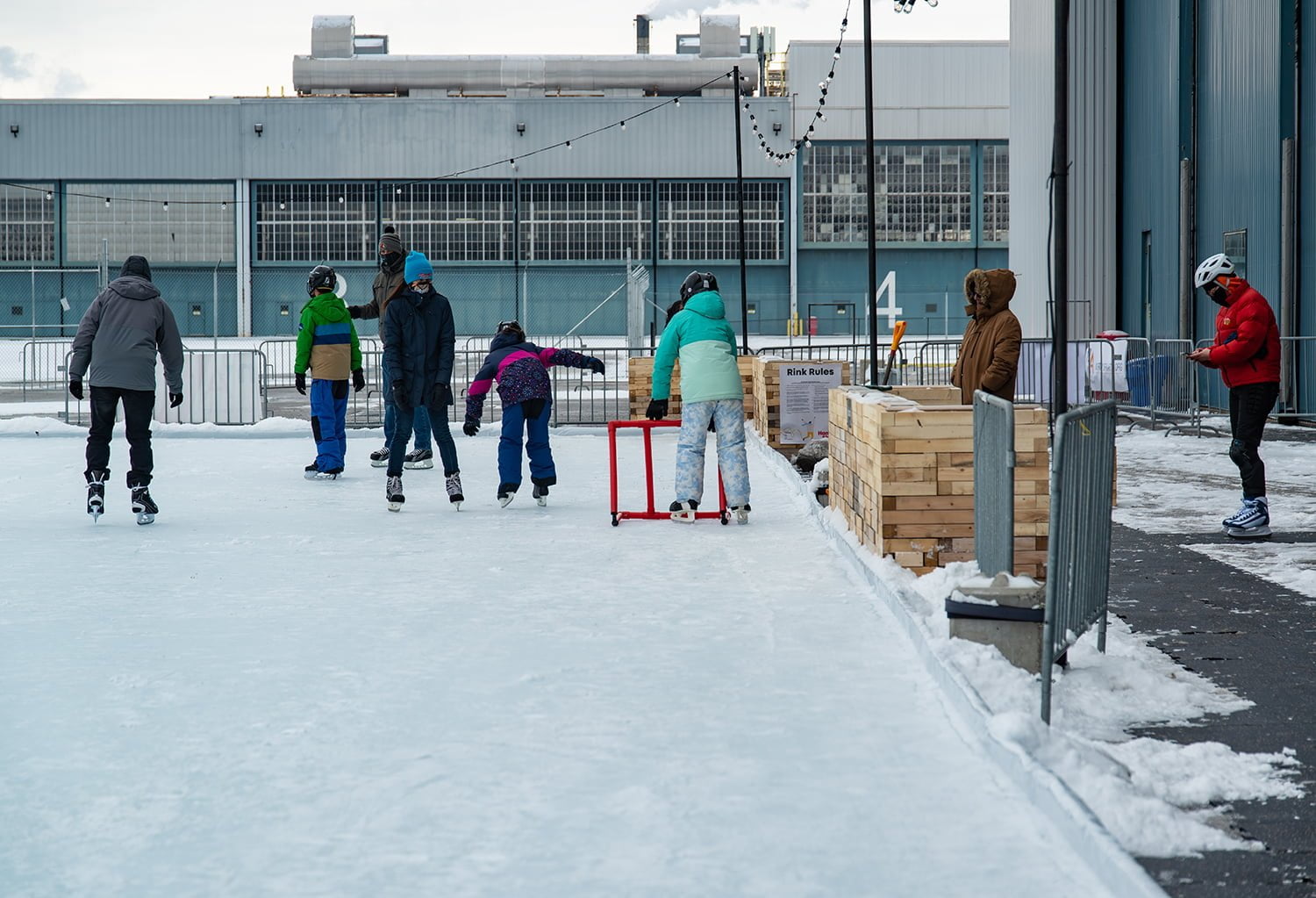
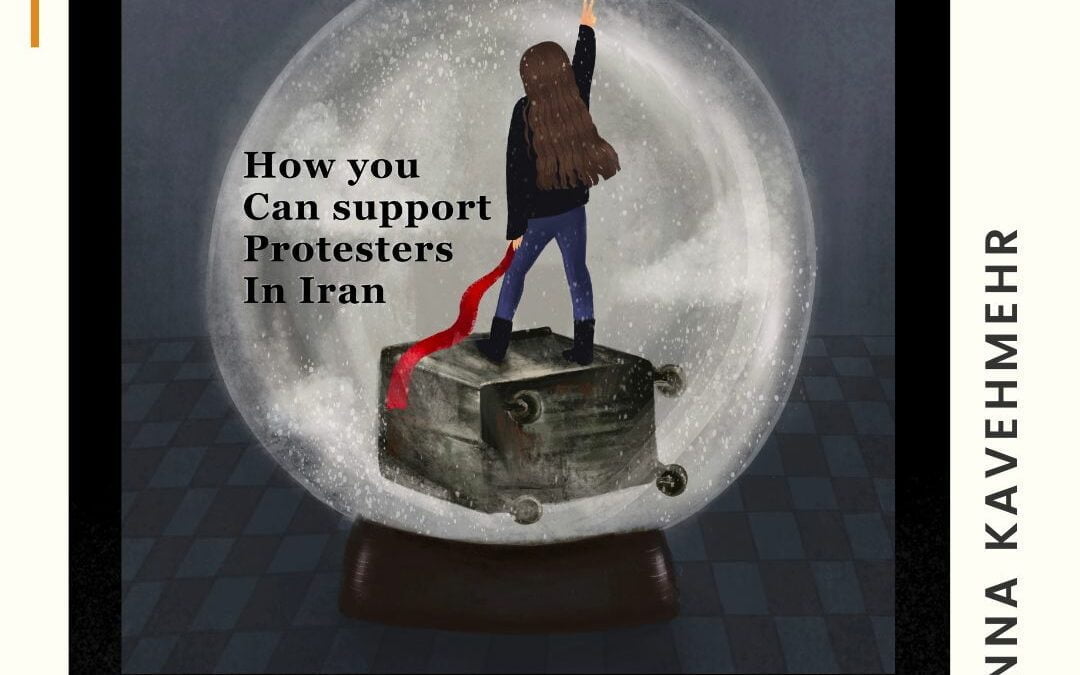
The Grow North Creative Residency is an initiative by North York Arts to “pass the mic” to artists in our community. Local artists living in North York are given the opportunity to share information, teachings, and their artistic practice with our audience, and engage with the North York Arts community in meaningful ways.
One of the most beautiful things I have experienced since the start of the protests in Iran, is the solidarity my non-Iranian friends have shown from the beginning of the woman, life, freedom movement. It is absolutely wonderful to witness so many people supporting, empathizing and genuinely wanting to help Iranian protesters in their fight for freedom.
I have been asked multiple times and have seen countless comments all over social media of non-Iranians asking: “How can we help?”, and so I wanted to share some of the ways that you can help below:
- Stay engaged and share the news about Iran
- Write to your representatives and ask them to support Iranian protesters
- Sign petitions in support of the Iranian protesters
- Attend protests in your area
- Help Iranians overcoming internet blackouts and filtering
At this link, you will find a comprehensive list of resources and action items, such as how to help protesters with the internet blackouts and filtering, that is updated on a regular basis.
If you would like to stay up-to-date on the Iran news, information and real-time developments, here are some accounts you can follow on Instagram:
Thank you again to North York Arts for giving me this opportunity to amplify the voices of the protesters in Iran.























































